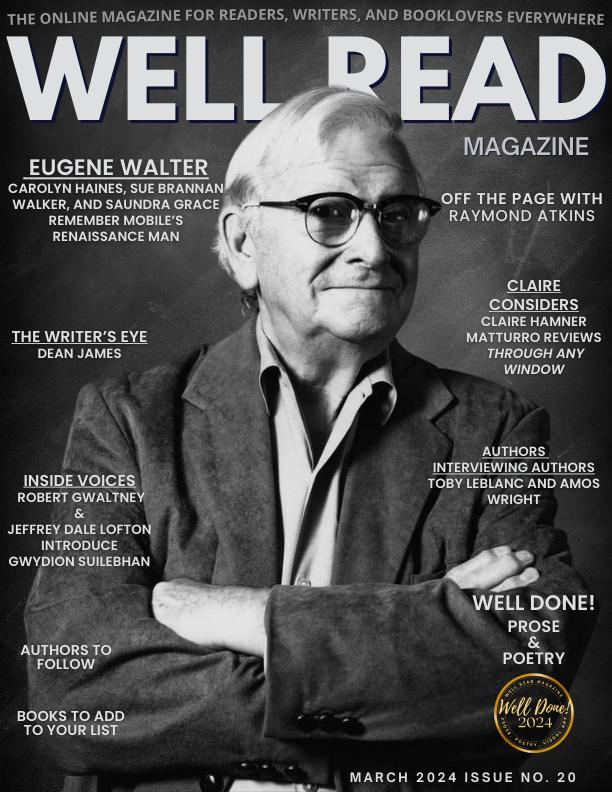

From Where to There
Sue Brannan Walker
Dear Eugene, Ferdinand, Renaissance Man, Raconteur, Professor Willoughby, journalist Walter, I did not steal your Goodluck jockstrap.
Perhaps you left it in Rome when acting in 8½.
Perhaps Federico Fellini purloined it at a dinner one night as you two dined on oysters--fried, stewed, and nude, drank fine Frascati wine, and he opined, “Cinema is an old whore, like a circus and variety show, and knows how to give many forms of pleasure.”
Eugene on a balcony in Paris during the early 1950s. Encyclopedia ofAlabama
I revel in your poetic names, Federico and Ferdinand, and I wonder, Eugene, if you barked in Rome’s restaurants when you wanted fresh ground pepper instead of some popinal paste. You told Fred you’d made up an interview with him, whole-hog, and published it in the Transatlantic Review. Byzantine types understood each other.
Life’s a tuzzy-muzzy of complications, as we hide the amadelphous tears of clowns and smile. Your mama said you only blushed when you told the truth, and when you escaped for some six hours, your father found you following a circus. Rome is not so very different from Mobile, kingdom of buffoons, monkeys, and musicians.
I remember your home on GrandAvenue, your 17 cats, the life-sized Dolly Parton cutout inside your living room, the Lev clock and little match-box holding three pubic hairs Tullulah Bankhead once had given you. “Sooner or later Southerners come home,” “not to die,” you said, “but to eat gumbo.”
Wherever you are Eugene, I’m sure life’s a party.
Your Sassy Sue

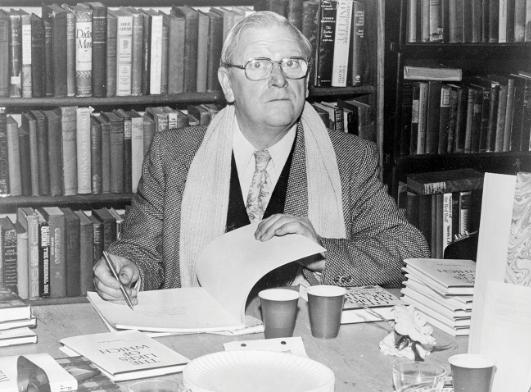
“Down in Mobile, they’re all crazy, because the Gulf Coast is the kingdom of monkeys, the land of clowns, ghosts and musicians, and Mobile is sweet lunacy’s county seat.”
― Eugene Walter, The Untidy Pilgrim
WELL READ MAGAZINE 4
Eugene Walter signs his books in Mobile. Photo courtesy Cammie East, The Doy Leale McCall Rare Book and Manuscript Library, University of South Alabama.

HELLO READERS! 5 MARCH 2024 ISSUE NO. 20 LETTERFROMTHEEDITOR 7 EUGENEWALTER,AMANFORANYSEASON 9 MOBILELITERARYFESTIVAL 40 WHATAREYOUREADING? TOADDTOYOURTBRLIST 49 WHYYOUSHOULDADVERTISEINWELLREAD 71 INSIDEVOICESwithRobertGwaltneyandJeffreyDaleLofton 75 WELL DONE! PROSE, POETRY, AND ART SANDYTELLSMEABOUTDEADPINETREESbyJ.D.Isip 87 THEOLDWOMANANDTHEBIRDSbyCasieBazay 91 UNDERTHEWALLbyJacobStrunk 107 THEGAMESWEONCEPLAYEDbyAnnChristineTabaka 123 ACCIDENTbyJoanMcNerney 127 BOOKCASEINTHEHOUSEOFMYANCESTORSbyFhenM. 133 LASTNIGHTICRIEDbyReneéDrummond-Brown 137 ITRIEDbyStevenKent 143

WELL READ MAGAZINE 6 THEPRINCEINHISMAUSOLEUMbyPeterMagliocco 147 CALLFORSUBMISSIONS 151 THEWRITER’SEYEwithDeanJames 155 CLAIRECONSIDERSwithClaireHamnerMatturro 158 AUTHORSINTERVIEWINGAUTHORS TobyLeBlancandAmosWright 167 NETWORKING 199 WHAT’SYOURSTORY? 207 OFFTHEPAGEWITHRAYMONDATKINS 209
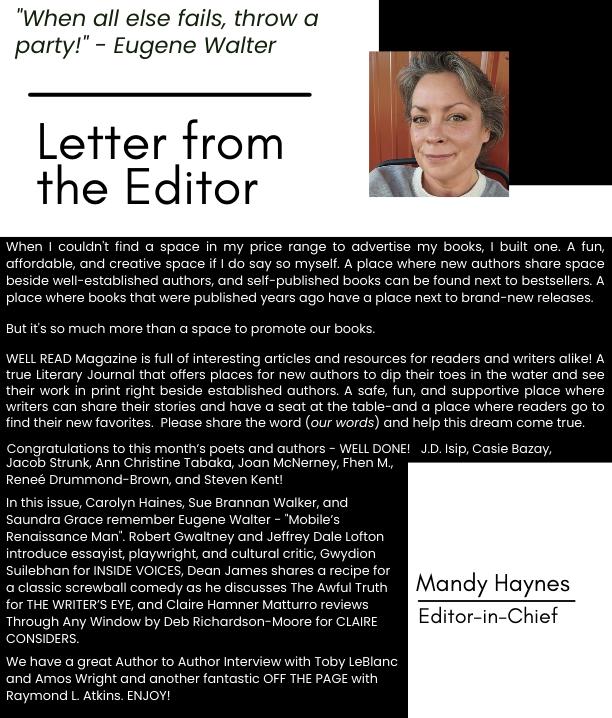
LETTER FROM THE EDITOR 7 MARCH 2024 ISSUE NO. 20

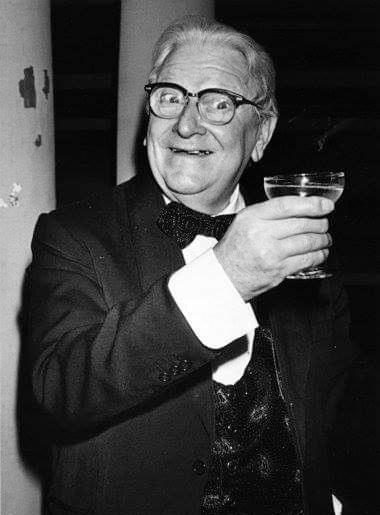
Carolyn Haines, Sue Brannan Walker, and Saundra Grace remember
Eugene Walter, a Man for Any Season.
8 WELL READ MAGAZINE
Carolyn Haines, Sue Brannan Walker, and Saundra Grace remember Eugene Walter
EUGENE WALTER, A MAN FOR ANY SEASON
EUGENE WALTER,AMAN FORANY SEASON
Carolyn Haines
It’s impossible to fully capture who Eugene Walter was. Novelist, poet, translator, coffin painter, film star, lyricist, barking mad diner, enjoyer of Jim Beam and port—he was all of that and so much more. Most importantly, though, he was a good friend.
In the opening of The Untidy Pilgrim, Eugene Walter’s Lippincott-award winning coming of age tale, he describes Mobile as “sweet lunacy’s county seat.” This past February, in Mobile we were in the midst of Mardi Gras, a time of celebration and definitely some lunacy. It’s a party that always brings Eugene to mind. How he loved carnival.
As a celebration of Eugene and the carnival season, I asked two writers to join me to put together a few memories of Eugene. Sue Walker and I knew Eugene well. Saundra Grace knows Eugene through his literary career.
Sue Walker was chair of the University of SouthAlabama English department and head of creative writing for
9 MARCH 2024 ISSUE NO. 20
many years. Her influence has been felt by generations of students, and she engineered the Renaissance Man celebration for Eugene.Acelebrated poet and teacher, Walker served asAlabama’s poet laureate 2003-2012 and was only recently inducted into the University ofAlabama, College of Education Hall of Fame.
Saundra Grace traveled the world and returned to Mobile in 2018.
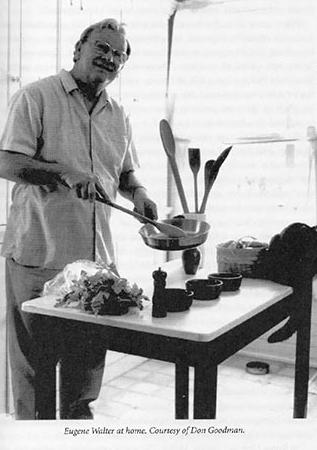
I moved to Mobile in 1983 and met Eugene shortly thereafter. We were fast friends until his death in 1998. Here are a few tales that catch the flavor of a man who will always epitomize the best of Mobile to me.
WELL READ MAGAZINE 10
Carolyn Haines, Sue Brannan Walker, and Saundra Grace remember Eugene Walter
MY ILLUMINATING, INCONTESTABLE, INCANDESCENT EUGENE WALTER
Sue Brannan Walker
I imagine mornings, afternoons, evenings with Eugene Ferdinand Walter, Mobile’s grand Renaissance Man, imagine him reading “Hurly-burly, hullabaloo, / From whence comes the likes of you?” I Imagine Fanny Dryer, that grimalkin, that feline creature he found huddled in the dryer on the back porch of his Grand Boulevard home, and I imagine Eugene saying, as Fanny jumps up beside me: “Darling, she’s just trying to read your lips. Cats do that, you know. So speak up. Whatever do you have to say today about our grand poo-bahs and politics?”
I imagine it’s nearing noon, and Eugene hands me a glass of Port. I imagine we talk for an hour, and he tells of going to mass with his grandmother at St. Joseph’s, recalls her arranging flowers on the altar, and recollects a catechism class with a Polish nun who had a moustache. We talk publishing. It’s 1982, and he’s written “William Faulkner’s Shopping List” for the journal Negative Capability: Jack Daniels, 6 Redbird tablets, Witch Hazel,
EUGENE WALTER, A MAN FOR ANY SEASON 11 MARCH 2024 ISSUE NO. 20
chocolate mints for Dean. He also wrote “Agatha Christie’s Shopping Listicle” for the gazettes that graced each issue. It’s time for lunch and we’re off to Butch Cassidy’s at 60 N. Florida Street. I order Tombstone Chips and Salsa, Outlaw Rings, and Wildbunch Shrooms, but Eugene’s busy barking like a Pumi or Pekingese, and tumps pepper paste on the restaurant floor. He wants proper peppercorns.
I imagine time past is time present. It’s evening. Eugene’s enjoying a toast or two with Jim Beam and a few special friends. “Try my Dr. Willoughby crab kebabs from Delectable Dishes of Termite Hall,” he says. “And Carolyn Haines, will you pass the Korozott Liptoi; you know, that Hungarian Caraway Dip of mine.” Well, here’s to mayhem and madness, frolic and fun, my dear Eugene, my fabulous, fanciful, festive Ferdinand, winsome Walter. I shall, with some Mardi Gras Merry Widows dance on your grave. Cheers, Santé, Skål, Salud.
Author Eugene Walter with flowers, Mobile, Alabama,April 22, 1988. Photographer - Diane Laakso.
Atlanta Journal-Constitution PhotographicArchives. Special Collections andArchives, Georgia State University Library.
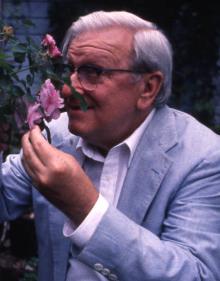
WELL READ MAGAZINE 12
Carolyn Haines, Sue Brannan Walker, and Saundra Grace remember Eugene Walter
BREATHING IN THE SPIRIT OF EUGENE WALTER
Saundra Grace
On a hot summer night in 1974, I sat in a tiny movie theater in the ancient cobblestoned Trastevere quarter of Rome, the only one in the city that showed films in English or with English sub-titles. The seats were small, hard, and close together, and the room so filled with smoke that every time they stopped the film to change a reel, the entire roof would open to clear the air. For a few minutes every half hour or so, one could look up to the star-filled sky over Rome.As a young, lone backpacker from Mobile,Alabama, it was hard not to be enchanted with the exotic nature of the moment.
Federico Fellini’s film, 8 ½, a 1960s black and white Italian classic, was playing that night. I spoke no Italian at the time, but read the sub-titles quickly, trying to decipher all the symbolism packed in the film. Suddenly, my ears picked up a change in the tempo of the language as the character of the youngAmerican journalist, dressed in a white summer suit, began speaking in a mixture of Italian
EUGENE WALTER, A MAN FOR ANY SEASON 13 MARCH 2024 ISSUE NO. 20
and English, with what was most decidedly a Southern accent. I had no idea who he was, and it didn’t really matter, he was a minor character added in the mix with all the other accents. But in viewing my story over the past fifty years, I like to think of that night as the moment the spirit of Eugene Ferdinand Walter walked off the screen and into my life.
It would be disingenuous to say that I thought about him after that event, when in reality, I only learned his name in 2000, when I was on vacation in Mobile from Miami, and attended a book launch by chance of “Moments with Eugene,” held at the historic Church St. cemetery. It would be another 18 years, until 2018 when I returned to Mobile to live after a 44-year absence, that Eugene became flesh and blood to me, and I heard, saw, and felt the impact he had on the entire literary community and beyond. But there were many hints along the way that we were leading parallel lives, separated by time, most of which I only realized after 2018 when everyone I met had a Eugene story!
I followed in his footsteps—New York, Paris, Rome. Though Eugene was almost thirty years older, we both felt the need to leave our Gulf Coast home to travel, to learn more, to see more and be more. Learning languages became our ticket to other worlds (and I am still impressed by his French and Italian). He lived in Paris, as did I,
WELL READ MAGAZINE 14
Carolyn Haines, Sue Brannan Walker, and Saundra Grace remember Eugene Walter
where he was well known in the 1950s to one of my dearest friends,AlfredAllan Lewis, who told me of their connection shortly before his death in 2022.
I lived and worked for the United Nations in Rome for four years in the early 1990s, and love the history of every cobblestoned street, and the scent of time that permeates the air. But Eugene embraced Rome, making it his home for many years in the 1960s and 70s, where I am sure he charmed the Italians with his sense of fantasy, flamboyance, and creativity. His love of wild and interesting parties, good food and fine drink, would have endeared him to Romans, who, throughout time, have seen everything, done everything, and accept everything.
I enjoy reading his colorful descriptions of the cities that so influenced my life, and nod in understanding when I read of his home with stacks of papers everywhere and books galore, and the absolutely indispensable memorabilia we collected from all the glorious people and places in our lives. I laughed out loud when he talked of the rude Italian hand gesture of thumbing one’s nose, maramèo, having seen it often on the streets in Italy.
And we both returned home, Eugene and I, when it was time. Based on the Eugene stories I continue to hear twenty-six years after his death in 1998, I think he brought his European life back with him, continuing to live as he always had: he called everyone Darling in his never-lost
WALTER, A MAN FOR ANY SEASON 15 MARCH 2024 ISSUE NO. 20
EUGENE
Southern accent, encouraged writers and artists, continued to write of what he loved, held court, introduced our genteel city to day-drinking, loved cats and Jim Beam, and generally turned the outrageous into an art form. I once asked Sue Walker what it was about Eugene that people were drawn to. “He was so unique,” she replied, “so completely himself.”
At the end of the Fellini film 8 ½, the characters are assembled like Circus performers—clowns, musicians, dancers, prostitutes, parents, producers, actors, adoring women, and a gleefulAmerican journalist—all holding hands, dancing around the edges of a circus ring. There is much hilarity, fancy dress, andAbsurdist drama at its finest. I cannot decide whether Eugene constructed his life along Fellini’s vision, or whether Eugene’s life was an inspiration to Fellini.
I am not saying that the spirit of Eugene Walter called me home to Mobile,Alabama. But I will say that when I got here, he was waiting.
WELL READ MAGAZINE 16
Carolyn Haines, Sue Brannan Walker, and Saundra Grace remember Eugene Walter
MOONLIGHT, MARDI GRAS BEADS, ANDAGLASS OF PORT
Carolyn Haines
It was a full moon on Mobile Bay the evening I met Eugene Walter for the first time. He arrived at a neighbor’s house with a huge cardboard box filled with hot dogs from the Dew Drop Inn, one of his favorite eateries.
“And who are you?” he asked me.
And even though I was just a wannabe writer, he listened to every single word I said.
I met Eugene in 1983. I’d moved out to Old Bay Front Road into one of the old officer’s houses at what once had been BrookleyAFB. Eugene loved the view of the bay and the moon and the quiet nook that was my home for several years. He visited the writers there often.
I’d never met a man so filled with fairy charm. Eugene was all twinkling eyes and laughter. I was instantly charmed.
From those first meetings, I became Eugene’s driver for errands when I wasn’t working. We made our forays to the liquor store, the grocery store, and all places in between. We went to lunch and drank wine because he said iced tea
EUGENE WALTER, A MAN FOR ANY SEASON 17 MARCH 2024 ISSUE NO. 20
would give us both kidney stones. Everyone in town knew him and catered to him.
Eugene won the Lippincott Prize, one of England’s top literary prizes, when he was 26 years old. He wrote short stories, plays, cookbooks, and translations. He composed music, painted coffins, and made films with Fellini. He lived in Paris and helped found the Paris Review.And he lived in the city of his heart, Rome, for a number of years.
In the end, he returned to his birthplace of Mobile. And I benefited from that decision.
I have a lot of memories of Eugene. The excellent fun we had sustained me through some emotionally hard times. He got me absolutely snockered one day at lunch— and I had to go back to work. I knew I was in big trouble, so I locked my office door and thought, “Oh, if only I can just put my head down for ten minutes I’ll perk up and be okay.” Half an hour later I woke up because I had drooled all over my knees.And when I told Eugene, he only laughed. “Perhaps the aperitif (Ouzo) was a bit much,” he said, totally unrepentant.
While we did talk books and writers, I never saw an iota of snobbery in Eugene and his assessment of other writers. He disliked some people—and he made that plain.And generally for good reason. But he was my friend.
He nicknamed me Hippolyta, the Queen of theAmazons. He told me I was a warrior and to never let anyone
WELL READ MAGAZINE 18
Carolyn Haines, Sue Brannan Walker, and Saundra Grace remember Eugene Walter
push me in a corner. He encouraged my writing and generously read my manuscripts.
We were both cat lovers, and I tried to help him with the many cats he fed and cared for at his home on GrandAve. I hardly ever sat in the “cat free” room at his house, where he had a huge cardboard cut-out of Dolly Parton that he adored, because I loved his cats and enjoyed petting them. Cats and trees—those were things no one messed with.
He had a lovely war with the power company about cutting the tallow trees on his right of way on Grand Blvd. (He won!)And he gave me a seedling of a tallow tree. It is over thirty feet tall now and the squirrels and birds love it in my front yard. I go out some days and put my hand on the bark and I can feel Eugene’s energy. His love for the trees should put the local city administration to shame since cutting trees seems to be their “thing.”
“Mobile is known as the city of trees,” he would tell me. “The beauty, the shade, they are what makes Mobile so unique.”And he fought for them.All of them. Even the ones like the tallow, that some people consider a “trash tree.”
My favorite Eugene story is one that occurred not too long after I met him. I had come up with a theory that we recreate the emotional miasma of our childhoods. I would ask people to say one word that described their childhoods. My theory was that if the person was honest, the
FOR ANY SEASON 19 MARCH 2024 ISSUE NO. 20
EUGENE WALTER, A MAN
word would reflect not only the past but the present.
I’m always surprised by the honesty with which most people answer. Surprised and often saddened by such words as fear or unhappiness. My word, just so you know, was responsibility. I have been and am a very responsible person. I run an animal refuge and take care of 22 cats, dogs, and horses. I was raised to be and therefore I am…responsible.
But Eugene!Ah, Eugene. He had the best answer anyone has ever given. His word was “enchanted.”And honestly, he was! Eugene’s life was not easy. He had loss and disappointment. But he didn’t see his life as a series of hardships or losses. He saw…adventure and fun! He focused on creating enchantment and he certainly did manifest it.
When I went over to his house one evening for “a special dinner” he had candles burning and a big bag of marshmallows. We roasted those marshmallows by candle flame, and we made up stories that made us laugh. He could create magic by sheer will of his personality, and I had the good sense to understand I was in the presence of a unique human being.
For all of the many, many things he was, enchanted is my favorite.And his generosity in sharing that with me is a special gift I cherish to this day.
WELL READ MAGAZINE 20
Carolyn Haines, Sue Brannan Walker, and Saundra Grace remember Eugene Walter
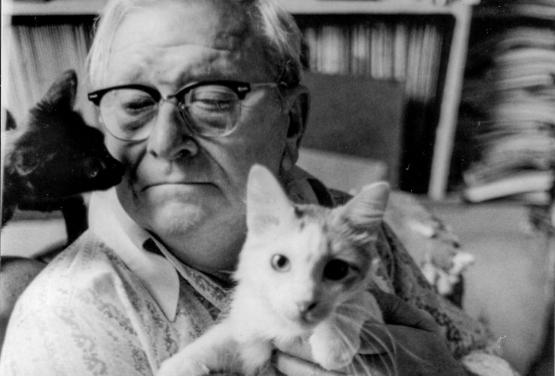
WALTER,
MAN
SEASON 21 MARCH 2024 ISSUE NO. 20
EUGENE
A
FOR ANY
Eugene with his moggies at his Grand Boulevard home in Mobile. Photo courtesy Renee Paul, The Doy Leale McCall Rare Book and Manuscript Library, University of SouthAlabama.
Carolyn Haines is the USA Today best selling author of over 80 books, including the long-running Sarah Booth Delaney mystery series. She has been inducted into the Alabama Writers Hall of Fame and was the recipient of the Harper Lee Award for Distinguished Writing and the Richard Wright Award for Literary Excellence. She lives on a small farm in Alabama which doubles as a refuge for a number of older cats, dogs, and horses.
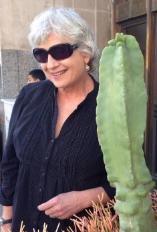

 Carolyn Haines, Sue Brannan Walker, and Saundra Grace
Carolyn Haines, Sue Brannan Walker, and Saundra Grace
WELL READ MAGAZINE 22
remember Eugene Walter
Carolyn Haines
Sue Brannan Walker
Saundra Grace


EUGENE WALTER, A MAN FOR ANY SEASON 23 MARCH 2024 ISSUE NO. 20

FUN FINDS WELL READ MAGAZINE 24
Eugene Walter “dancing” with some staff from the Paris Review
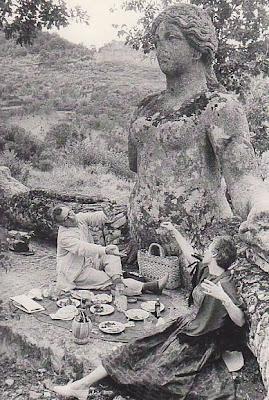
EUGENE WALTER, A MAN FOR ANY SEASON 25 MARCH 2024 ISSUE NO. 20
Eugene Walter picnicing outside Rome
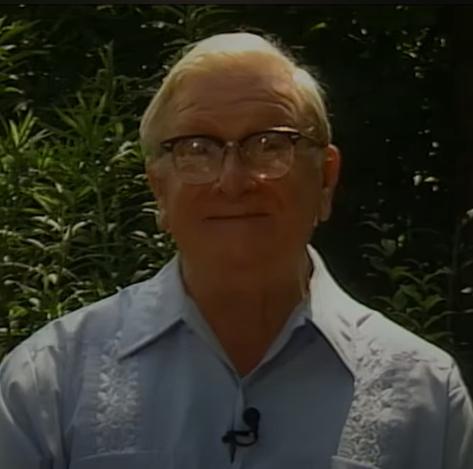
Bookmark with Don Noble: Eugene Walter (1989)
WELL READ MAGAZINE 26
to watch
Click
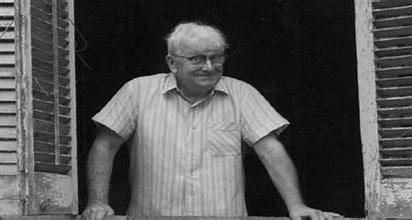
Click to watch
ALABAMAPUBLIC TELEVISION PRESENTS Eugene Walter - Last of the Bohemians
27 MARCH 2024 ISSUE NO. 20
Ode to Eugene Walter Jeff Grill
Mobile had its own Renaissance man— home from Rome after forty years as poet, playwright, puppeteer, pal of Plimpton at the Paris Review, frolicker in Fellini flicks, in varied roles but none such fun as priest and nun— different films, of course.
Back in Mobile at Termite Hall, Eleanor andAdelaide— sisters, not nuns—offered hospitality. He called on friends for transportation, abetted Sue Walker launching Negative Capability, wrote of arts and cooking—delectable dishes, taught us how to properly bake a potato—
no tin foil—that’s steaming, he said. He eschewed dead dry dust in the shaker by the salt—
Lagniappe WELL READ MAGAZINE 28
preferred freshly grinding green or pink peppercorns, wrote for theAzalea City News and Review, EWEW—Eugene Walter Every Week: food, recipes, critiques of chamber music performances (some he hadn’t attended). He spoke often of his dear friend, Mr. James Beam, He liked that handle.
Dinner at The Pillars with Eugene Walter Jeff Grill
Spring 1980:
Early evening–
literate conversation with Eleanor,Adelaide, Eugene, porch of Termite Hall.
Later:
dined at The Pillars.Ate well, drank much. Eugene requested, bread, butter, peeled garlic cloves— some consumed with gusto, others with trepidation.
29 MARCH 2024 ISSUE NO. 20
Ode to Eugene by Jeff Grill
More surprising than raw garlic, Eugene paid the bill.
Still later: declined Eugene’s invitation for a nightcap, navigated to my rented digs in Springhill Manor, reeked of garlic through all my pores for both days of my hangover.
March 1998: Eugene departed this life. He is buried in Church Street Graveyard.
March 2009: an event of the Southern Literary Trail Celebration—
“Dinner at The Pillars” with menu by Eugene Walter.
Lagnaippe WELL READ MAGAZINE 30

Jeff Grill is a retired professor of special education, avid bread baker and road cyclist. He participates in Sue Brannan Walker’s ongoing poetry salon. His nonfiction has appeared in Mobile Bay Magazine, Alaskafest–the Magazine of Alaska Airlines, The Single Parent, and the Azalea City News and Review. He lives in Mobile with his wife, Linda.
31 MARCH 2024 ISSUE NO. 20
Dinner at The Pillars with Eugene Walter
Note from the editor:
I want to thank Carolyn for sharing so many stories of her time with her dear friend Eugene with me on her back porch, after the horses are fed and cocktails are poured. Those stories are what caused me to hound her to put pen to paper. I also want to thank Sue, and Saundra for a fantastic article and for sharing some of their stories with WELL READ.
As they were getting everything finalized, I happened upon a social media post from The NewSouth Bookstore in Montgomery,Alabama that almost knocked me off my seat! Just that day, they had finished creating a beautiful display in the store with a donation of several Eugene Walter items. Talk about serendipity. I reached out to the co-founder, Suzanne La Rosa, to find out the story behind the story of the display. Here’s what she says…
“I received a call from Mary Lakin out of the blue asking if The NewSouth Bookstore had interest in a donation of items from Eugene Walter’s estate. I understood that her husband, who was executor of Walter’s estate, had recently died, and she was eager to handle the rest of the business associated with the estate. The items she had to give us were books and posters and various other print things. Of course, I was interested. Our bookstore sells new and used books, and we receive donations of books all the time, but this was different. Books coming directly from Eugene Walter’s estate would
A little bit of Mobile magic at work… WELL READ MAGAZINE 32
be special. My initial instinct was to arrange some kind of book program which would honor Walter in connection with the gift; our bookstore very actively hosts book and other events, as you’ll note in our email newsletter. We have LOTS of programs. But when I talked to Lakin about this, it was more than she could think about at the time. She just wanted to get the items into our hands, and so they were delivered.
I was emotional going through the contents of the several boxes that came to us. The books fairly vibrated with his spirit! It took a fair amount of time to organize the items, to determine which were signed or not, to assess the condition and value of each. But the work was completed, and in handling I began to envision a little display for the bookstore acknowledging the gift. Our bookstore is small and crammed with books (makes for great browsing, by the way!), but we gave over a large table at the front register area for the display. It seemed appropriate to put the display up on Mardi Gras — Walter is, after all, the Renaissance Man of Mobile. It will remain up until Easter.
The display features poster-size signage with a brief introduction to the work and life of Walter and explains the nature of the items on display. We priced the items very attractively, in part because we wanted others to have the opportunity to own these special things that once had belonged to Walter. I’m pleased with the way the display
THE NEWSOUTH BOOKSTORE 33 MARCH 2024 ISSUE NO. 20
table looks. It’s festive and very inviting. But the main thing is that I feel it properly acknowledges the special talents and personality of the man who was Eugene Walter. You cannot browse the items we received from his hands, as it were, and not feel closer to him.” Suzanne.
If you would like to have something of Eugene Walter’s, please get up (or down, or over) to The NewSouth Bookstore at 105 South Court Street, in Montgomery,AL as soon as you can. Or you can find them online here.

“I’ve had a great life, and it all happened because I didn’t plan any of it.”
Eugene Walter
THE NEWSOUTH BOOKSTORE WELL READ MAGAZINE 34
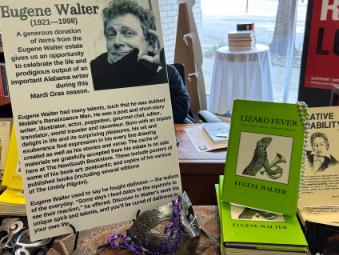

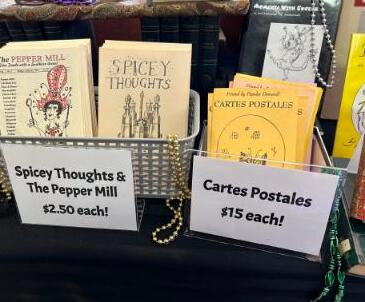
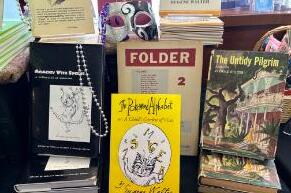
THE NEWSOUTH BOOKSTORE 35 MARCH 2024 ISSUE NO. 20
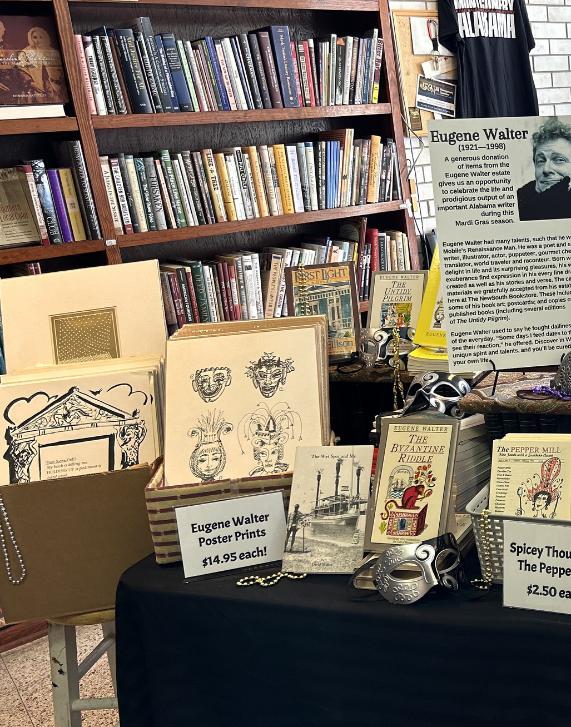
WELL READ MAGAZINE 36

37 MARCH 2024 ISSUE NO. 20
WHERE ARE YOU
MOBILE LITERARY
ALL THE WORLD’S
YOU GOING?
LITERARY FESTIVAL WORLD’S A STAGE

“The Mobile Literary Festival strives to bring Mobile’s vast literary community together for one day of learning, sharing ideas, and celebration. This year, we are approaching writing from a stage and screen angle to help all of us bring our words on the page to life.”
MOBILE LITERARY FESTIVAL WELL READ MAGAZINE 40
Mobile Literary Festival Founder, Jodie Cain Smith
Free writing conference in Mobile,Alabama:
Aspiring and accomplished writers and readers of all genres are welcome at the 2024 Mobile Literary FestivalALLTHE WORLD’SASTAGE.
This year’s festival will be held from 9:00 a.m. to 5:00 p.m. at the Ben May Main Library on Saturday, March 23 in historic downtown Mobile,Alabama.
The annual Mobile Literary Festival features Mobile’s top literary talent for creative writing workshops, a local author book sale, publishing industry panel discussions, poetry readings, and more for writers and readers alike. The Mobile Public Library, Mobile Writers’ Guild, and The Haunted Book Shop sponsor this free festival.
FREE offerings include:
� Setting the Stage: a panel discussion on setting with Carrie Dalby, Candice Marley Conner, and Michael Strecker
� Entrances, Exits, & the In-betweens: a panel discussion on plotting with Jason Stuart,Amy Delcambre,
ALL THE WORLD’S A STAGE 41 MARCH 2024 ISSUE NO. 20
and Carolyn Haines
� Find YourAudience: Learn to market your book with Mandy Haynes, Cynthia Eden, and Lena Patton Webb
� Sue Brannan Walker’s Poetry (Brown Bag) Lunch & Listen
� Scene to Screen: Dive into screen adaptations with Jodie Cain Smith andAdam Prince
� WritingAway Refuge Pitch War!
We are pleased to welcome back The Haunted Book Shop’s popup shop inside the library, featuring area author favorites, national bestsellers, writing craft books, and children’s books.
The 2024 Mobile Literary Festival is brought to you by the Mobile Public Library, The Haunted Book Shop, and Mobile Writers’Guild. The festival schedule and more information is available on the Mobile Literary Festival Facebook page.
About the Mobile Public Library: The Mobile Public Library is a public service agency. Our mission is to
MOBILE LITERARY FESTIVAL - March 23, 2024 WELL READ MAGAZINE 42
support literacy and connect our community. We offer books, ebooks, DVDs, CDs, audiobooks, classes and special events.
About The Haunted Book Shop: The Haunted Book Shop in downtown Mobile,Alabama, specializes in genre fiction, writing craft, and local history. It has a large children’s section with a reading tent and a friendly cat named Mr. Bingley. The store offers literary gifts and hosts author events. The cozy and inviting atmosphere encourages browsing, and the knowledgeable staff is always ready to offer recommendations or help customers find a specific book. The store’s philosophy is to provide an immersive and enjoyable experience. The Haunted Book Shop is a must-visit destination for book lovers in the Mobile community.
About Mobile Writers’Guild: The Mobile Writers Guild is dedicated to supporting writers across the Gulf Coast. Our members are writers of all stages, from brand new beginners to seasoned published pros. From September to May, MWG hosts monthly meetings with craft workshops to help members hone their skills, understand the business of publishing, and stay inspired.
ALL THE WORLD’S A STAGE 43 MARCH 2024 ISSUE NO. 20

Jodie Cain Smith is an author, founder of the Mobile Literary Festival, and the event coordinator for The Haunted Book Shop in Mobile,AL.
Her books include The Woods at Barlow Bend, her debut novel based on the true story of her grandmother’s tumultuous
adolescence in ruralAlabama, Bayou Cresting: The Wanting Women of Huet Pointe, and 100 Things to Do in Mobile Before You Die. She is the winner of the 2022 Page TurnerAward for ScreenAdaptation Needed and Best Anthology. Her short works have appeared in The Petigru Review, Pieces Anthology, and Chicken Soup for the Military Spouse's Soul. When not creating fictional worlds on her laptop, Jodie hangs out with her long-suffering husband and the most precious little boy ever created. Seriously, the kid is amazing, and the husband puts up with a lot. Jodie is represented byAmy Collins of Talcott Notch Literary.
MOBILE LITERARY FESTIVAL - March 23, 2024 WELL READ MAGAZINE 44

Carrie Dalby, a Mobile resident since 1996, writes primarily in the Southern Gothic genre focusing on the 1890s-1920s including the Washington Square Secrets series, The Possession Chronicles, and The Malevolent Trilogy.
FORTITUDE, a teen novel, is listed as a “Best History Book for Kids” by GratefulAmerican Foundation.
Carrie has published seventeen books, numerous short stories in various anthologies, and several non-fiction articles in international magazines. Part of her volunteer work includes having served two terms as president of Mobile Writers Guild, five years as the Mobile Bay area Local Liaison for SCBWI, and helping coordinate the Mobile Literary Festival.
ALL THE WORLD’S A STAGE 45 MARCH 2024 ISSUE NO. 20
WHAT ARE YOU
YOU READING?
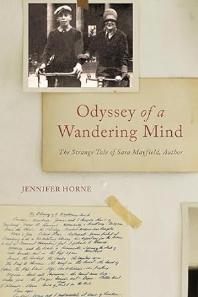
Odyssey of a Wandering Mind: The Strange Tale of Sara Mayfield,Author by
Jennifer Horne
Acarefully rendered portrait of a brilliant but troubled daughter of the Old South who struggled against the conventions of gender, class, family, and ultimately of sanity, yet survived to define a creative life of her own
Sara Mayfield was born intoAlabama’s governing elite in 1905 and grew up in a social circle that included Zelda Sayre, Sara Haardt, and Tallulah and Eugenia Bankhead.After winning a Goucher College short story contest judged by H. L. Mencken, Mayfield became friends with Mencken and his circle, then visited with Scott and Zelda Fitzgerald and hobnobbed with the literati while traveling in Europe after a failed marriage. Returning toAlabama during the Depression, she briefly managed the family landholdings before departing for New York City where she became involved in the theater. Inventing a plastic compound while working on theatrical sets, she applied for a patent and set her sights on a livelihood as an inventor and businesswoman. With the advent of World War II, Mayfield returned to her family home in Tuscaloosa where she expanded her experiments, freelanced as a journalist, and doggedly pursued a bizarre series of military and intelligence schemes, prompting temporary hospitalization. In 1945, she mingled with a host of cultural figures, including Frida Kahlo, Diego Rivera, Orson Welles, Rita Hayworth, and even a young John F. Kennedy, while reporting on the creation of the United Nations from Mexico and California. Back in Tuscaloosa after the war, however, she struggled to find her way with both work and family, becoming increasingly paranoid about perceived conspiracies arrayed against her. Finally, her mother and brother committed her to Bryce Hospital for the Insane, where she remained for the next seventeen years.
WHAT ARE YOU READING? WELL READ MAGAZINE 48
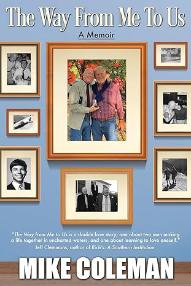
The Way From Me to Us
by Mike Coleman
Two men in love.Aworld ready for change. THE WAY FROM ME TO US is the story of two pioneers. It’s the true account of a love that began nearly 50 years ago in a Nashville gay bar called The Other Side. It was 1977, when coming out could mean you lost everything. Your job. Your friends. Your family.
Mike and Ted were all too aware of the risks at the bar that night. It was literally a step to the other side for Mike, who was nowhere near as accepting of his true self as Ted was of his. “I like being gay,” Ted told him. “I’d like to find somebody who likes being gay with me.”
Mike accepted the challenge. With no instruction manual, the two of them staked out a life together at a time when such things “just weren’t done.” Theirs is a story of two men battling the toughest challenges, some external, some that sprang from within. It’s the story of the triumph of an undeniable love that has lasted nearly half a century.
This uplifting memoir will move and inspire you. It’s living proof that, no matter how vehemently the world works against it, love wins.
TO ADD TO YOUR TBR LIST 49 MARCH 2024 ISSUE NO. 20

The Devil and Mrs. Davenport:ANovel by Paulette Kennedy
The bestselling author of The Witch of Tin Mountain and Parting the Veil mines the subtle horrors of 1950s America in a gripping novel about a woman under pressure―from the living and the dead. The first day of autumn brought the fever, and with the fever came the voices.
Missouri, 1955. Loretta Davenport has led an isolated life as a young mother and a wife to Pete, an ambitious assistant professor at a Bible college. They’re the picture of domestic tranquility―until a local girl is murdered and Loretta begins receiving messages from beyond. Pete dismisses them as delusions of a fevered female imagination. Loretta knows they’re real―and frightening.
Defying Pete’s demands, Loretta finds an encouraging supporter in parapsychologist Dr. Curtis Hansen. He sees a woman with a rare gift, more blessing than curse. With Dr. Hansen’s help, Loretta’s life opens up to an empowering new purpose. But for Pete, the God-fearing image he’s worked so
WHAT ARE YOU READING? WELL READ MAGAZINE 50
hard to cultivate is under threat. No longer in control of his dutiful wife, he sees the Devil at work.
As Loretta’s powers grow stronger and the pleading spirits beckon, Pete is determined to deliver his wife from evil. To solve the mysteries of the dead, Loretta must first save herself.
Paulette Kennedy is the bestselling author of The Witch of Tin Mountain and Parting the Veil, which received the prestigious HNS Review Editor’s ChoiceAward. She has had a lifelong obsession with the gothic.As a young girl, she spent her summers among the gravestones in her neighborhood cemetery, imagining all sorts of romantic stories for the people buried there.After her mother introduced her to the Brontës as a teenager, her affinity for fog-covered landscapes and haunted heroines only grew, inspiring her to become a writer. Originally from the Missouri Ozarks, she now lives with her family and a menagerie of rescue pets in sunny Southern California, where sometimes, on the very best days, the mountains are wreathed in fog.
Paulette’s next release is THE DEVILAND MRS. DAVENPORT, a mid-century domestic gothic set in the Missouri Ozarks, about a housewife who develops psychic abilities after a viral illness, pitched as Shirley Jackson meets Sharp Objects. Coming March 2024 from Lake Union Publishing.
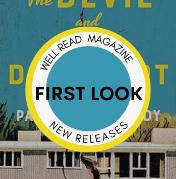
TO ADD TO YOUR TBR LIST 51 MARCH 2024 ISSUE NO. 20
CLICK ABOVE FOR A FIRST LOOK OF THE DEVIL AND MRS. DAVENPORT
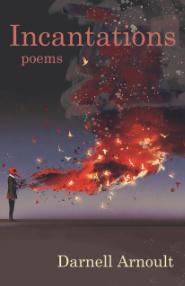

Out of grief, upheaval, derision, disappointment, and change of all kinds— from the intimate to the mythic— Incantations both admonishes and rails. DarnellArnoult’s evocative collection unleashes frustration and longing in tongues of fire.And while her poems walk heaven’s blues home in a rush of images, real and imagined, they point to an undergirding optimism and path toward healing and hope where joy lies “dazed and waiting.” The spells cast here are beyond magic, beyond human—no less than urgent, no more than what’s necessary to begin again.
The Intimacy of Spoons explores the many metaphors of the spoon: from love and marriage to the spoon of a grave that holds our bodies; from the darkness of loss and night, where “the Big Dipper is nothing but / the oldest spoon pointing us home”; to the darkness of lungs transformed into art. The poems cover a wide variety of topics—cultural, political, familial, and natural—and always, underlying these poems is the song of birds—with broken wings or clear voices, avian muses filling our forests now or long gone. There are nods to Basho and Thoreau, to Eliot and Frost, Dickinson and Milton, this last, a long poem that retells the story ofAdam and Eve from the point of view of Mal, the apple. Likewise, The Intimacy of Spoons shares a variety of forms, from sonnet, sestina, and villanelle to syllabics, lyrics, and a ballad.At the center of the book is the long poem, “Elegy for My Body,” which uses wordplay and contrasting voices to explore mortality, because “You can’t really do time; / it simply does us, / or undoes us, / us beings in the time being being beings / on Times Squared / waiting for the big ball to fall.” The poems of The Intimacy of Spoons return us to everyday stories and objects, common yet profound.
WHAT ARE YOU READING? WELL READ MAGAZINE 52
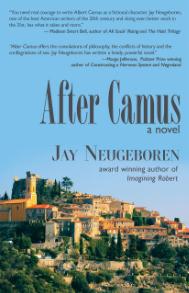
Atroubled marriage—and love story—set against the background of theAIDS pandemic, and theAmerican wars in Vietnam and Iraq lie at the heart of After Camus. Saul Davidoff and Tolle Riordan, who meet during a protest against the Vietnam War, marry, live through the Plague Years of theAIDS epidemic, raise a family … and burn out. Camus is a hero to both of them: Tolle, a young dancer and choreographer, has a liaison with him in Paris shortly before his death; Saul, inspired by Camus’s The Plague, becomes an infectious disease (andAIDS) doctor … and Camus becomes a ghostly presence central to our story.

MADVILLE PUBLISHING seeks out and encourages literary writers with unique voices. We look for writers who express complex ideas in simple terms. We look for critical thinkers with a twang, a lilt, or a click in their voices.And patois! We love a good patois. We want to hear those regionalisms in our writers’voices. We want to preserve the sound of our histories through our voices complete and honest, dialectal features and all. We want to highlight those features that make our cultures special in ways that do not focus on division, but rather shine an appreciative light on our diversity.
TO ADD TO YOUR TBR LIST 53 MARCH 2024 ISSUE NO. 20
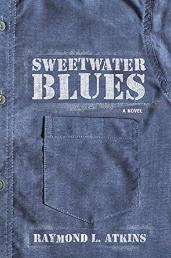
Sweetwater Blues:ANovel
by Raymond L.Atkins
Rodney Earwood and Palmer Cray had been best friends for as long as either could remember. They were brothers in all but the genetic sense, each born late in the lives of good women who had given up on the dream of motherhood by the time their respective miracles occurred. They wandered the hills of North Georgia, hunted the pine woods, fished the cool, green streams, and camped under the stars. They shared each other's clothing, each other's families, and each other's homes. They grew into tall young men, and on a hot May afternoon right after they turned eighteen, they both graduated from Sweetwater High School, numbers seven and eight in the crooked, sweaty line that held a class of thirty of Sweetwater's finest. Shortly thereafter, Rodney and Palmer flew a Camaro into a tree, Palmer flew into a haystack, Rodney flew into the great beyond, and nothing in Sweetwater was ever the same again. Follow Palmer in the aftermath of his one great mistake as he confronts regret at his own fallibility, endures punishment for his actions, finds unexpected redemption in unusual places, and is given a second chance to try to make it all right. He is joined in this journey by an unlikely cast of associate--including a methamphetamine dealer named Cheddar, a junkyard owner named Ottis Lee, a coffee-can addict named Bay-Annette, and anAlzheimer's patient who was once Rodney's mother--as they face each day and try to overcome their Sweetwater Blues.
WHAT ARE YOU READING? WELL READ MAGAZINE 54
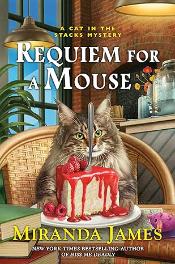
Requiem for a Mouse (Cat in the Stacks Mystery Book 16)
by Miranda James
Book 16 of 16: Cat in the Stacks Mysteries - PRE-ORDER NOW!
Librarian Charlie Harris and his everintuitive feline friend Diesel must catch a killer in a deadly game of cat and mouse where no one is who they seem to be...
At last, Charlie and Helen Louise’s wedding is only a month away. They’re busy preparing for the big day, and the last thing Charlie needs is a new mystery to solve. Enter Tara Martin, a shy, peculiar woman who has recently started working part-time at Helen Louise’s bistro and helping Charlie in the archive. Tara isn’t exactly friendly and she has an angry outburst at the library that leaves Charlie baffled.And then she abruptly leaves a catered housewarming party Charlie’s son Sean is throwing to celebrate his new home in the middle of her work shift. Before ducking out of the party, Tara looked terrified and Charlie wonders if she’s deliberately trying to escape notice. Is she hiding from someone?
When Tara is viciously attacked and lands in the hospital, Charlie knows his instincts were correct: Tara was in trouble and someone was after her. With the help of his much beloved cat, Diesel, Charlie digs deeper, and discovers shocking glimpses into Tara’s past that they could never have predicted. Will they catch the villain before Charlie’s own happily ever after with Helen Louise is ruined?
TO ADD TO YOUR TBR LIST 55 MARCH 2024 ISSUE NO. 20
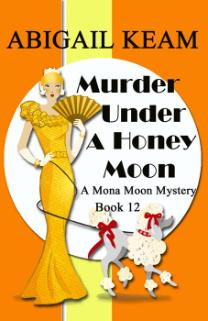
Murder UnderAHoney Moon:A1930s Mona Moon Historical Cozy Mystery byAbigail Keam
Book 12 of 13:AMona Moon Mystery Mona Moon and her new husband, Robert Farley, Duke of Brynelleth, are on their honeymoon at last. They have just boarded the RMS Majesty ocean liner. The couple are looking forward to visiting Robert’s ancestral English home, Brynelleth, and then off to Paris before winding up on the Italian Riviera.After a romantic evening of dancing until the wee hours of the night, Mona and Robert discover their suite has been ransacked and Mona’s jewelry, supposedly secured in their stateroom, has been stolen.
Mona is horrified as some of the jewelry belongs to the Brynelleth Estate and were cherished pieces of Robert’s mother. The ship’s crew searches the ocean liner, and a gold brooch turns up in a bartender’s cabin. It is the same bartender who served Mona and Robert earlier in the evening. The only problem is the bartender has been murdered and the rest of the jewelry is still missing.
WHAT ARE YOU READING? WELL READ MAGAZINE 56
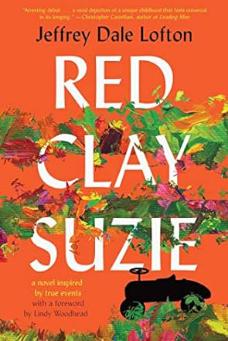
Red Clay Suzie by
Jeffrey Dale Lofton
Longlisted for the Center for Fiction 2023 First Novel Prize
A beautiful, distinctive voice that transcends genre and category
“Red Clay Suzie is beautifully written, deeply and authentically rooted in its small-town Southern setting, and powerfully driven by the distinctive voice of its main character, Philbet. This novel transcends category and genre: Its story of a child and then a young man "living and loving on the fringes," as Lofton says, and finding his place in the world would speak to both teens and adults. The story begins when Philbet is a young child, and Lofton's ability to conjure this child's unique perception of the world and the people around him is masterful. Lofton writes with deep compassion for all his characters and takes readers to an ending that is satisfying and life-affirming, but not easy or simple.” Five Star Reader Review
TO ADD TO YOUR TBR LIST 57 MARCH 2024 ISSUE NO. 20
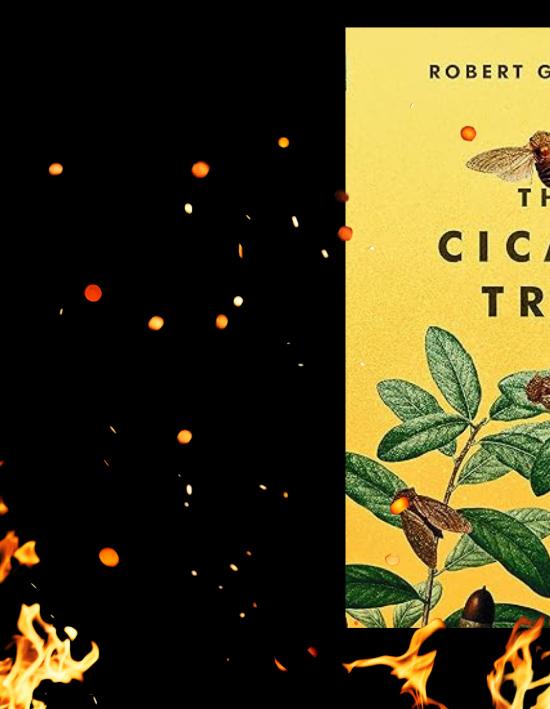

CLICK HERE FOR SOME EXCITING
NEWS FROM ROBERT
GWALTNEY




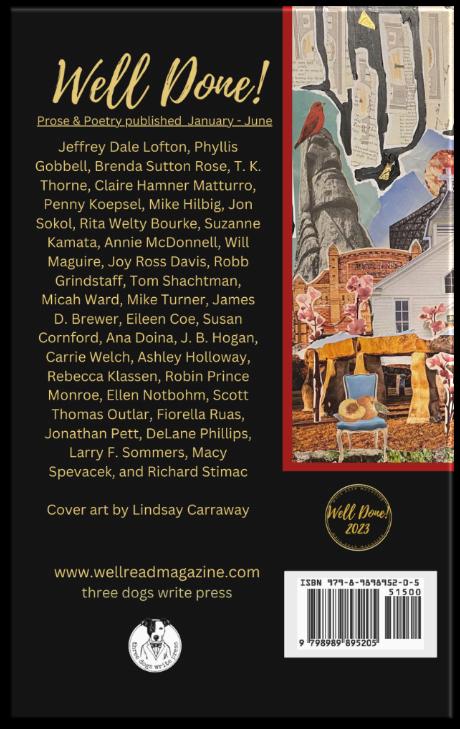

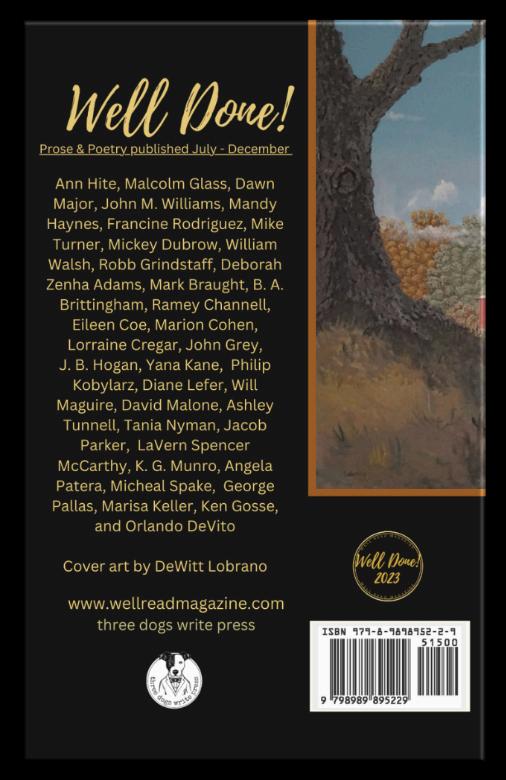
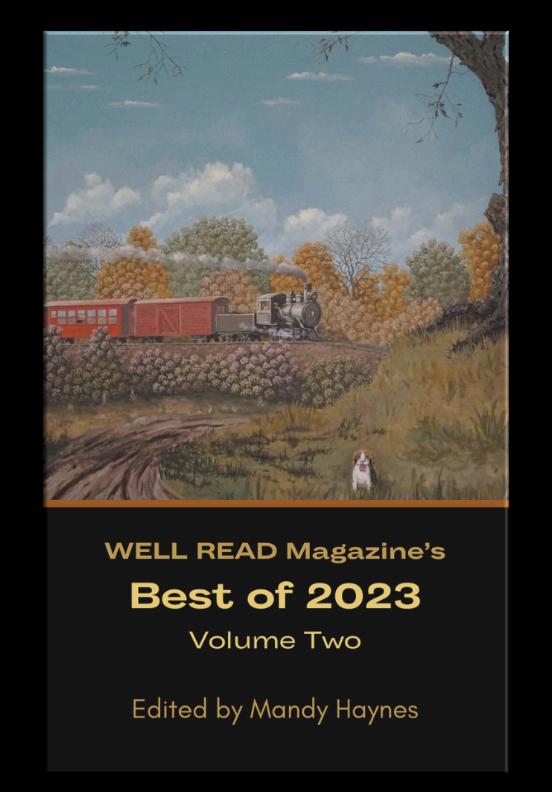
In January of 2023, WELL READ Magazine began accepting submissions for prose, poetry, and visual art. I received a wonderful mix of fiction, flash fiction, nonfiction, and poetry along with some amazing artwork. Some of the pieces will make you laugh and some will pull at your heartstrings—there are a few pieces that might make you cry or get your blood boiling. There are no prompts or themes for the submissions so I never know what I’m getting into until I dive in. Every single one is a surprise and a treasure.
I was honored to publish them in WELL READ and share them with our readers online, as well as with some great book-loving, reader-filled sites on social media. But I wanted to do more. By creating these anthologies, readers can hold the collections in their hands, make notes in the margins, smell the pages, and underline their favorite lines. I decided to split the submissions into two anthologies, Volume One—January through June—and Volume Two—July through December—for two different reasons. The first reason is because I wanted the book to be the perfect size for readers to carry with them to appointments, restaurants, and while traveling—wherever a good book comes in handy when readers need some company. The second reason is that it gave me a chance to feature two artists’work that was published in 2023 on the covers.
WHAT ARE YOU READING? WELL READ MAGAZINE 66

BEST OF 2023 Submissions Coming soon!
Paperback editions of Volume One & Volume Two will be available on 4-9-24. Kindle versions are available for pre-order now.

TO ADD TO YOUR TBR LIST 67 MARCH 2024 ISSUE NO. 20
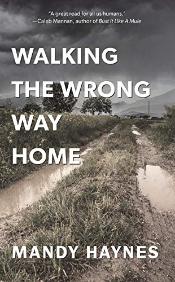
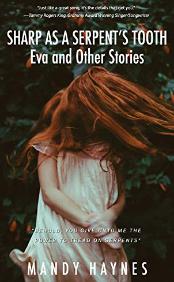
Walking The Wrong Way Home by Mandy Haynes
Spanning nearly twenty decades, the struggles and victories these characters face are timeless as they all work towards the same goal. Aplace to feel safe, a place to call home.
Sharp as a Serpent's Tooth: Eva and other stories by Mandy Haynes
Each story features a female protagonist, ranging from ten to ninety-five years of age. Set in the south, you’ll follow these young women and girls as they learn that they’re stronger than they ever thought possible.
WHAT ARE YOU READING? WELL READ MAGAZINE 68
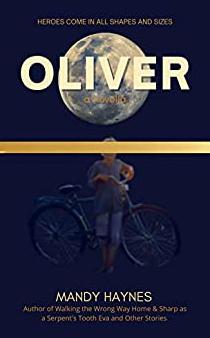 Oliver by Mandy Haynes
Oliver by Mandy Haynes
“Dear God…and Jesus and Mary…” Even though eleven-year old Olivia is raised Southern Baptist, she likes to cover her bases when asking for a favor. Unlike her brother Oliver, she struggles with keeping her temper in check and staying out of trouble. But Oliver is different, and in the summer of ’72 he proves to Olivia there’s magic in everything - it’s up to us to see it.
Mandy Haynes spent hours on barstools and riding in vans listening to great stories from some of the best songwriters and storytellers in Nashville, Tennessee. After her son graduated college, she traded a stressful life as a pediatric cardiac sonographer for a happy one and now spends her time writing and enjoying life as much as she can. She lives in Semmes, Alabama with her three dogs, one turtle, and helps take care of several more animals at Good Fortune Farm Refuge. She is a contributing writer for Amelia Islander Magazine, Amelia Weddings, author of two short story collections, Walking the Wrong Way Home, Sharp as a Serpent's Tooth Eva and Other Stories, and a novella, Oliver. She is the editor of the BEST OF 2023 WELL READ Magazine anthologies, Work in Progress, and co-editor of the Southern Writers Reading reunion anthology, The Best of the Shortest. Mandy is also the editor-in-chief of WELL READ Magazine, an online literary journal created to give authors affordable advertising options that supports and promotes authors of all genres and writing backgrounds. Like the characters in some of her stories, she never misses a chance to jump in a creek to catch crawdads, stand up for the underdog, or the opportunity to make someone laugh.
TO ADD TO YOUR TBR LIST 69 MARCH 2024 ISSUE NO. 20
When you purchase an “ad” for $50, you get a full page slot in WELL READ’s What Are You Reading? section with a live link to your website and a live purchase link of your choice.
Readers asked for full page, easy to read, “book recommendations” in place of traditional looking advertisements and I was happy to oblige.
As a bonus, there are personalized individual graphics made of your book image and author photo (if you choose to purchase a two page spread or more) with your book description and/or blurbs, bio, etc., shared to eight additional FB bookish accounts and to WELL READ Magazine’s Instagram, Pinterest, and Facebook sites –(that’s 39K potential views of your book when you combine all the sites).
WELL READ is distributed through ISSUU (the world’s largest digital publishing and discovery platform available). WELL READ Magazine receives an average of 8,000 views each month from readers all over the world.
Past issues are available and easily discovered on Issuu’s site. *All PAST issues, including the article and visual stories, remain active and are linked to the current issue. You can continue to share them for as long as you like. There is strength in numbers. Your “ad” will be included with the featured authors, great interviews, submissions, and the other fantastic books readers look for to add to their reading lists.
WHY YOU SHOULD ADVERTISE IN WELL READ WELL READ MAGAZINE 70

WHY YOU SHOULD ADVERTISE IN WELL READ 71 MARCH 2024 ISSUE NO. 20

SUBSCRIBE TO WELL READ’S NEW YOUTUBE CHANNEL! WELL READ MAGAZINE 72

BETWEEN THE PAGES - INTERVIEWS, READINGS, AND MORE 73 MARCH 2024 ISSUE NO. 20
INSIDE VOICES

“…for me, the process I rely on is deeply entwined with my subject matter, and I’m never following a formula when I make art.”
74 WELL READ MAGAZINE
Robert Gwaltney and Jeffrey Dale Lofton
introduce essayist, playwright, and cultural critic, Gwydion Suilebhan
Gwydion Suilebhan is a cultural critic, essayist, and playwright.Alifelong arts advocate, he serves as both the Executive Director of the PEN/Faulkner Foundation and the Project Director of the New Play Exchange for the National New Play Network.
Afounding member of The Welders, a Helen Hayes Award-winning playwrights collective in Washington, DC, Suilebhan previously held the position of Director of Brand and Marketing for Woolly Mammoth. Earlier in his career, he worked as a brand and communications consultant for arts and culture organizations.
Suilebhan currently serves on the board of theAlliance for Jewish Theatre. From 2017-2020, he was a member of the Council of the Dramatists Guild ofAmerica. He speaks widely on the intersection between the arts and technology in the 21st century.
Jeffrey: Gwydion, Robert and I have featured, for the most part, fiction authors during the last year, But we’re committed to highlighting all things literary. You describe yourself as an essayist, playwright, and cultural critic. Tell us why you identify as each of these.
Gwydion: Really and truly, I identify as a writer. I’ve worked in so many different genres over the years that I can’t really settle on a single label. (I have a master’s degree in poetry, and I worked my way through college as a journalist, and I’ve even written for film and television,
INSIDE VOICES 75 MARCH 2024 ISSUE NO. 20
too.)At the moment, I write with a co-author about comedy for Salon and a few other venues, and I’ve also worked as a book reviewer, so that’s why I’m a cultural critic. That same co-author and I write longer essays as well, on everything from politics to philosophy, and I’m also working on a memoir, so that’s why I call myself an essayist. For the last 20 years or so, though, I’ve mostly been known as a playwright, and if you Google me, I suppose that’s what’s likely to come up first.
Robert: In which of these three areas do you feel most at home?
Gwydion: Let me tell you, when I first discovered playwriting, after about ten years of chiseling granite, basically, as a poet, that really felt like coming home.All the impulses I’d had as a writer up until then, going all the way back to writing skits for my friends to perform in my basement when I was 12 years old – suddenly made sense. But lately, the longer I work in non-fiction, the more I feel connected to myself as a writer. The work I’m doing now feels the truest.
Jeffrey: As authors, we use the narrative arc to shape our long-form writing, especially in fiction. What’s the process like for writing a play?
Gwydion: I may be atypical among playwrights, but I
WELL READ MAGAZINE 76
Robert Gwaltney & Jeffrey Dale Lofton introduce Gwydion Suilebhan
definitely don’t have a single process. The first draft of my play LET X was written in one mad three-week, eighthours-a-day sprint at a diner in DC. (They must have thought I was crazy coming in day after day and drinking coffee like it was going out of style.) I developed THE BUTCHER over nine long years, the first year of which was spent devising scenes with actors doing guided improvisations for me one night a week. I took the exchanges they improvised, chopped them up, re-wrote them, threw various bits together, knitted it all up, and made it my own. One of my more recent plays, TRANSMISSION, started as a seven-page fragment that I shared with a friend who works as a sound designer, and evolved out of our conversations about the possibilities I was raising in those first few words. I suppose what I should probably say is that for me, the process I rely on is deeply entwined with my subject matter, and I’m never following a formula when I make art.
Robert: You have a writing partner. Tell us about that relationship.
Gwydion: I’ve known my writing partner Steve since we met in Mrs. Tompakov’s class in first grade. We’ve been dear friends for decades… so much so that he even officiated my wedding ceremony. He’s a professor of philosophy who focuses on wide-ranging subjects, with books on Einstein, comedy, and the Grateful Dead. He’s deeply impressive.
77 MARCH 2024 ISSUE NO. 20
Robert Gwaltney & Jeffrey Dale Lofton introduce Gwydion Suilebhan
Steve has immense gifts as a researcher, and he has a tremendous ability to write first drafts very quickly, whereas I’m much better at structure and revision and sentence-level composition. He is also able to detach himself emotionally from his writing. He is precious about nothing he writes, which allows me to say “Steve, we need to scrap this bit and start over here and try a new angle there” without affecting him one bit.
Honestly, neither of us have much of an ego in that way; as you might have gleaned from my description of my work as a playwright, I’m an avid collaborator. (Really, in the theater you have to be.) We have intellectual disagreements from time to time, but it’s not hard to resolve them. In fact, it’s not only not hard, it’s fun. We enjoy each other’s company a great deal. We meet once a week to review our work and set goals for the next seven days, and it’s usually an hourlong (or two-hourlong) laugh-fest.And then of course we text back-and-forth all week.
Generally speaking, when a piece of ours is done, it’s hard to identify which parts came from him and which came from me. We sometimes say that at the end of the day, 75% of the ideas are his and 25% are mine, but 75% of the words are mine and 25% are his, but that’s probably too neat and tidy. It all belongs to both of us.
Jeffrey: What’s your research process like?
Gwydion: For the most part, when I’m collaborating with
WELL READ MAGAZINE 78
Robert Gwaltney & Jeffrey Dale Lofton introduce Gwydion Suilebhan
Steve, I outsource the broad strokes to him, then help to fill in the fine details and missing bits. We also spend a great deal of time interviewing people. (Steve Martin and Randy Rainbow have been two of our favorites.)
When I’m writing a play, my research is haphazard. I know so many writers to research first, then write, relying on the heap of facts they’ve amassed to fuel their work like a cord of wood chopped for a winter-long fire. Me, I like to write until I need to know something, then go figure out whatever I don’t understand. I begin with the creative impulse, then reach for facts when I need them. Of course, very often those facts then derail what I’ve written by being stubbornly different than I expect, but that’s just an opportunity to try a fresh direction.
Robert: You’re an artist, but you also support artists as the director of PEN/Faulkner. What is that organization and what is your role?
Gwydion: PEN/Faulkner champions the breadth and power of fiction inAmerica. Now that I’ve fulfilled my obligation and shared our mission statement…
We are a 40+ year-old literary nonprofit that is most well known for giving out the PEN/FaulknerAward for Fiction and the PEN/MalamudAward for Excellence in the Short Story. We also hold public literary programs in DC where we’re based, virtually, and (starting this year) in other cities as well. Here at home we also bring free books,
79 MARCH 2024 ISSUE NO. 20
Robert Gwaltney & Jeffrey Dale Lofton introduce Gwydion Suilebhan
author visits, and writing instruction into under-served DC schools. In fact, that’s the largest share of work: ensuring that young people have access to fiction and can see themselves represented in culture.
As for my role: I’ve been the Executive Director for about five years now, which means I do, well, a bit of everything. Drumming up financial support for the organization (which is jobs one through nine), representing PEN/ Faulkner in various public capacities, and a lot of nutsand-bolts stuff, from insurance to legal to accounting, that takes up more time than I ever expected coming into the job.
Jeffrey: You’re also the project director of the New Play Exchange for the National New Play Network. What is that and who are the Welders?
Gwydion: The New Play Exchange is the world’s largest database of scripts by living writers and a platform for connecting theater makers to each other and to the resources they need to do their work.At the moment, our library includes about 56,000 scripts by more than 12,000 writers living in 30+ different countries, as well as profiles for almost 30,000 theater professionals and organizations.
The NPX, as we call it, is a project sponsored by the National New Play Network, and I serve as the director of that project, which really means I’m the chief architect and
WELL READ MAGAZINE 80
Robert Gwaltney & Jeffrey Dale Lofton introduce Gwydion Suilebhan
evangelist. (The NPX was inspired by an article I wrote back in 2012 calling for a database of scripts to serve the theater field.) I oversee the development of new features, and I travel all over teaching people about how to use the NPX and benefit from what it offers. I am very proud to say that more than two million people all over the world have access to the NPX, and over the 9+ years since we launched it, it has completely changed how theater professionals work and connect with each other.
The Welders is a DC-based nonprofit playwright collective that I co-founded (with four other playwrights and one creative director) about ten years ago. When we established the organization, our mission was to produce one play by each of us over three years, then give The Welders away—website, board of directors, bank account, and all—to a new generation of artists. (Three years, five plays pass it on. That was our motto.) That second generation gave it to a third generation, and the third generation gave it to a fourth group just a few months ago. (My cofounders and I had great-grandchildren!) Our most fervent wish when we started was to create a lasting platform to support DC playwrights who came up after us, and so far, I think we’ve succeeded.
Robert: The intersection of the arts and technology.Are we getting intoAI territory here?And if so, do you have misgivings about howAI may change the cultural landscape?
81 MARCH 2024 ISSUE NO. 20
Robert Gwaltney & Jeffrey Dale Lofton introduce Gwydion Suilebhan
Gwydion: Oh, definitely notAI. Mostly what I speak about nowadays is the New Play Exchange, though for a while I gave talks about social media, the way that agile software development principles might inform the making of theater, and digital branding.
I try not to be reactionarily or reflexively opposed to new technologies. In fact, as might be obvious, I’ve been inclined to embrace technological change my entire life. Having said that, something aboutAI just scares me. Perhaps it’s a fear exacerbated by ignorance, but I worry aboutAI diluting our culture, making it more bland and universal and functional, less rich and complex and diverse.
Jeffrey:Alittle literary bird told us that you’re guffawing over your keyboard these days writing a book about the rich tradition of Jewish comedy. We want to know more. Please, fill us in.
Gwydion: This is my big project with Steve. We’re working on a book about the history of JewishAmerican comedy from Rube Goldberg to the present day, and we are having a great time. Steve and I have been thinking and talking and laughing about comedy our entire lives, so the work is coming so naturally.
It’s also an opportunity for the two of us, as Jews, to represent our culture in a new way. Comedians have been the most exhaustive chroniclers of JewishAmerican life, we
WELL READ MAGAZINE 82
Robert Gwaltney & Jeffrey Dale Lofton introduce Gwydion Suilebhan
think, over the last hundred years, and you can learn a lot (and have a ton of fun along the way) by comparing Fanny Brice and Randy Rainbow, Lenny Bruce and Lena Dunham, the Marx Brothers and Mel Brooks and Mrs. Maisel. In all that time, Jews have been using comedy as a way of greasing the social skids of acceptance, moving from outsiders in theAmerican hierarchy to a kind of off-White privilege (at least for those of us who are White), then in some cases abusing that privilege. There’s an immensely important story to be told, and we’re hopefully telling it.
83 MARCH 2024 ISSUE NO. 20
Robert Gwaltney & Jeffrey Dale Lofton introduce Gwydion Suilebhan



WELL DONE! Essays, Memoirs, and True Stories WELL READ MAGAZINE 86
Sandy Tells MeAbout Dead Pine Trees
J.D. Isip
“Mother didn’t consider much to be trash.” Sandy changes the subject from her husband’s health, but keeps a steady eye on Robyn who sits across the table. It’s Christmas Eve. “People throw out useful things all the time, like Christmas trees the day after Christmas.”
Robyn says there are places where you can rent a tree for the season and bring it back to the farm when you’re done. They come in little pots. They get planted when they outgrow the pots. He read about them on the internet.
“But what if you kill it?” Lee, their son, ever skeptical of his father’s stories, challenges this concept. “Or what if you don’t want to give it back? How will they find you?”
It's past midnight. We all have to be up early in the morning to ogle Robyn and Sandy’s granddaughter, the only child among us, opening her presents, looking for that rush from our past that passes too fast. We are not so much contemplating Lee’s questions as we are attempting
SANDY TELLS ME ABOUT DEAD PINE TREES by J.D. Isip 87 MARCH 2024 ISSUE NO. 20
to stretch another Christmas to its limits.
Sandy guesses the tree farm would find you. Lee asks how that could be, but our mother moves on, “There’s nothing like piling up pine trees after Christmas and jumping in them.”
We all look around the table. One of us, maybe all of us ask, “Why would you do that?”
“Because it’s fun,” Sandy says.
We watch as she smiles. Perhaps returning at that moment to a day after Christmas, old friends wiping tree sap on their sleeves. Each one daring the others to jump first, all of their mothers still alive, unlike that pile of trees.
Robyn is getting sicker. But he married a woman who is always the first to jump.
“It doesn’t sound like fun at all,” Lee looks to me for agreement, “Sounds painful. It’s masochism is what it is.”
Sandy looks at her watch and tells Robyn to grab the stuff in the kitchen. To ask one of us for help if he needs it. Lee keeps going on about our mother’s crazy Wichita Falls stories, the dumpster diving and the dead Christmas trees. “Why would you jump into a pile of pain?”
“Honey,” she kisses her son on the cheek, puts on her coat, “That’s life.”
Robyn has gathered far too much to carry out on his own. Still, he’s surveying us; his sons and his wife, “It was a good goddamn night!” We laugh. We’re worried. We say
WELL DONE! Essays, Memoirs, and True Stories WELL READ MAGAZINE 88
goodnight. We’ll struggle to get up in the morning. But we will.As long as we can.
Because it’s fun.
J.D. Isip’s full-length poetry collections include Kissing the Wound (Moon Tide Press, 2023) and Pocketing Feathers (Sadie Girl Press, 2015). His third collection, tentatively titled I Wasn’t Finished, will be released by Moon Tide Press in early 2025. J.D. lives in Texas with his dogs, Ivy and Bucky.
SANDY TELLS ME ABOUT DEAD PINE TREES by J.D. Isip 89 MARCH 2024 ISSUE NO. 20
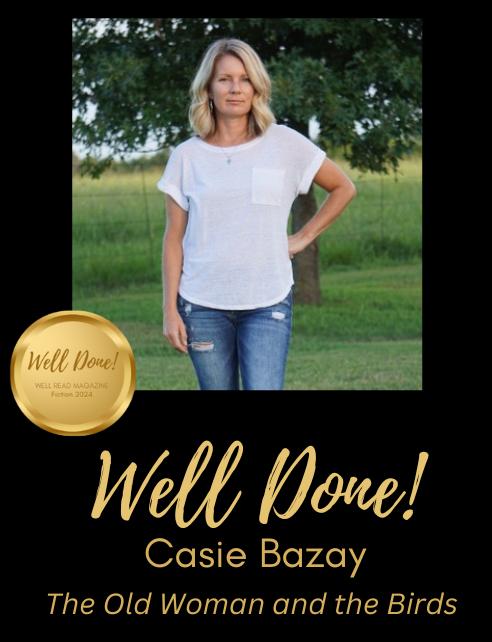
WELL DONE! Fiction WELL READ MAGAZINE 90
The Old Woman and the Birds
Casie Bazay
Frances’favorite day of the week was Friday, not because it set off the weekend (each day was like the next anymore), but rather, because it was the day her sister, Margaret, called for their weekly chat. The phone had yet to ring this morning, but Frances wasn’t overly concerned. Margaret probably got tied up with something else, maybe another phone call. Lord, how that woman loved to talk.
In the meantime, Frances sat on her back porch, where she’d begun taking her coffee every morning, at least since watching that NOVAdocumentary that said nature was good for serotonin levels or something of the sort. Though Frances hadn’t been convinced in the beginning, in time, the fresh air changed her mind, leading her to conclude it was, indeed, a good way to start the day. The rising sun, yellow-red like a ripening tomato. Black coffee.And birds. For some reason, her small lawn attracted them by the
THE OLD WOMAN AND THE BIRDS by Casie Bazay 91 MARCH 2024 ISSUE NO. 20
dozens.
Frances pulled her phone from the pocket of her house dress, checking to make sure the ringer was on and mumbling to herself about Margaret’s tardiness. When she looked back up, she was surprised to find that a bird had hopped quite close to the porch. So close, in fact, that Frances could stick a leg out and touch it with the toe of her house shoe if she so chose. She didn’t, of course. Instead, she sipped her coffee and scrutinized the small creature. It had a full, yellow breast with grayish-brown feathers covering the rest of its body. It was rather plump for a bird. Maybe what some would call cute.
“Hello, little birdie. Whatcha doing there?”
Almost as if it understood her words, the bird looked up at Frances, cocked its head to one side, and opened and closed its beak like it wanted to say something. But the fact that a bird had taken interest in her at all sent an uncomfortable ripple through her gut. She clapped one hand on her leg, sending it away. The bird lapped her yard once, landing in the far corner, next to a sickly young tree Frances never bothered to water.AMother’s Day gift from her middle daughter two years ago.
As Frances continued to drink her coffee, her gaze followed the yellow-breasted bird. She was fairly sure she’d never seen it until today. The other birds were solid gray or black. She made a mental note to check out a bird
WELL DONE! Fiction WELL READ MAGAZINE 92
book from the library, that way she could at least identify the ones in her yard.
Eight o’clock came and still no call from Margaret. Frances grumbled with annoyance but went inside to cook some porridge and eat. When nine o’clock came around and Margaret still hadn’t called, an inkling of concern settled in. Frances decided she’d give her sister another fifteen minutes. Then, she was going to place the call herself.
Frances had picked up the phone to do just that when a loud ring emitted from the device, startling her. She touched the large green button and pressed it to her ear.
“Hello, Margaret?”
“HiAunt Frances. It’s Melanie.” Something in her niece’s voice was off.
“Oh, hello, Melanie.”
“Are you sitting down,Aunt Frances?”
“Yes, why?” Frances felt a sudden tightening in her throat. Like someone was trying to squeeze the breath out of her.
“It’s Mom. She . . . ” Melanie’s voice broke off in a sob, and it took a full thirty seconds for her to recover. By that time, Frances had long since figured it out though a voice in her head screamed, NO, NO, NO! How could Margaret—her only sister and last living sibling—be gone?
THE OLD WOMAN AND THE BIRDS by Casie Bazay 93 MARCH 2024 ISSUE NO. 20
The rest of the day passed in a haze. Each of her three daughters, as well as several other relatives, called, offering to drive or fly with her from Kansas to Pennsylvania. Frances turned them all down. She and Margaret had long ago agreed they wouldn’t attend the other’s funeral—whichever of them left this earth first. Funerals were something they spoke of often, in fact. They’d each attended their fair share; it happened when you got old.And they both thought it best to remember the other as she’d been the last time they’d seen each other. Just over a year ago, at Easter, in this case.
Frances would also remember Margaret the way she looked in the photo across the room on her bookshelf. The one where they were lanky teenagers with windswept hair and matching smiles. Frances recalled that day as if it had been only months ago, not decades and decades. She and Margaret had just arrived home from a bicycle ride around Lake Shawnee where they’d talked to boys and eaten ten cent hot dogs on the boardwalk. Their father always said they looked more like twins in that photo and maybe that was the reason Frances had it framed. She’d looked up to her older sister so much, especially back then.
The following morning, Frances didn’t want coffee or nature or much of anything for that matter. But Margaret’s sing-song voice played in her mind. Don’t be a such a gloom, Frances. There’s still plenty of things to look
WELL DONE! Fiction WELL READ MAGAZINE 94
forward to.
But what did Frances really have to look forward to? The same old house? Same old TV shows? Same old food? Her daughters’constant nagging about taking better care of herself. The great-grandkids coming over to visit, but mainly ignoring her as they stared and swiped at their phones.
Frances sat on her bed, pitying the pathetic state of her life. Why couldn’t she have died first? She’d certainly wanted to after her husband, Pete, had gone eight years ago. But here she was at eighty-nine, still kicking.And now, she was not only a widower, but an only, orphaned child as well.
In time, Frances forced herself to get dressed. The sun was up and there was no use wallowing in her room all day. She made coffee out of habit, if nothing else, and headed out to the back porch where she was surprised to find the birds still hopping about, even at this late hour. She searched for the bright-colored one from the day before, but it was nowhere to be found.
Frances sighed and slumped in her chair. When she took a drink, the coffee burned her tongue. The corn on her left big toe ached like the dickens. Somewhere in the neighborhood, a horn honked, sending the birds away in a blur of speckled darkness. Frances dumped her coffee on the lawn and wept.
THE OLD WOMAN AND THE BIRDS by Casie Bazay 95 MARCH 2024 ISSUE NO. 20
She went back to bed and stayed there for the rest of the day. Frances fully intended to lie there until she, too, died, but her eldest daughter interrupted the process by showing up the next morning.
“Mom,” Katrina called, having let herself in with the key Frances regretted ever giving her. “You okay? Where are you?”
“In here,” Frances called. There was no use trying to pretend she was anywhere other than where she was.
Footsteps sounded on the tiled floor, and Trina’s head appeared in the doorway. “Mom! What are you doing? It’s past nine! I’ve tried to call you several times this morning.” Trina came to the bedside. “Get up. Come on. I’m taking you out for brunch.”
“I’m not hungry.”
“Get up, Mom.” Trina had inherited her mother’s rather strong stubborn streak, so there was really no use arguing. Frances didn’t have the energy anyway. She dressed in gray slacks and a navy blouse while Trina waited in the living room.
“Don’t you have anything clean?” Trina asked when Frances emerged from her bedroom. “Your clothes look like they’ve been laying in a heap on the floor.”
“I forgot to do laundry.”
Trina shook her head, looking exasperated. “Mom, you have more clothes than those same three or four outfits
WELL DONE! Fiction WELL READ MAGAZINE 96
you always wear. Why don’t you put on something else?”
“I’m fine.”
“Don’t you want to at least brush your hair?”
Frances combed her fingers through the wispy strands. “There.”
Trina sighed, but then went to fetch her mother’s purse. They ate at Hanover’s, which Frances normally liked, but today, the syrup was too sweet and the pancakes too mushy.
“Mom, Jim and I are going to the funeral. Why don’t you come with us? I’ll get you a plane ticket. We’re leaving in the morning.”
“No thanks.” Frances took another dejected bite.
“Mom. This is ridiculous. She’s your sister. Your best friend.”
Frances sipped her water. “Mom?”
“I said no and that’s what I meant. Don’t ask me again.”
Trina’s lips drew into a tight line and her neck got splotchy like it always did when she was angry or upset. They didn’t talk for the rest of their meal.
Trina didn’t break the silence until they were back in her car. “I’m worried about you, Mom. Jim and I have been talking. How about if you move in with us? I really think you should be with other people. I know you don’t want to go to a retirement home but you could come live
THE OLD WOMAN AND THE BIRDS by Casie Bazay 97 MARCH 2024 ISSUE NO. 20
with us. We have . . .”
Frances cut her off. “I’m perfectly fine where I am.”
“Mom . . . why do you always have to be so difficult?”
“I’m not being difficult. You’re being difficult. I told you my answer and you just don’t like it.” Frances stared straight out the windshield, refusing to look at her daughter, whose eyes continued to bore into her. “Watch the road, why don’t you? You’re liable to get us into a wreck.”
Trina grunted.
When they made it back to Frances’house, Trina went to check the pantry. “I’m going to get you some groceries. I don’t want you to run out while we’re gone.”
“They always deliver on Mondays.”
“I know that. But I’m still getting you some. You can just have extra.”
“Suit yourself.”
An hour later, Trina returned with two bags of food, which she put into the pantry and fridge. The Great British Baking Show played on the television, and Frances pretended to watch.Afew moments later, she felt Trina’s presence behind her.
“Mom, are you okay?” Her daughter’s voice was soft and sad.
No, I’m not okay, Frances thought. “My sister died.” Saying the words aloud proved more painful than merely
WELL DONE! Fiction WELL READ MAGAZINE 98
thinking them. “But that’s what happens when we get old. We die. Move on to whatever’s next.” Or maybe nothing at all. “It’s depressing, Trina.”
Trina was quiet for a long while. Her hands found Frances’shoulders. “I’m sorry, Mom. I wish life didn’t hurt like this.” Frances gave her daughter’s hand a pat. “I also wish you’d go with us to the funeral. You probably need the closure.”
Frances drew her hand away. “I don’t need closure. I know good and well she’s gone.”
Trina sniffled and walked away. “I’ll call to check on you tomorrow,” she said before closing the front door. The way she said it made Frances feel like a burden. Like she was a job her kids had never signed up for.
Frances did a lot of thinking that afternoon.About Margaret.About Pete.About her own lonely life. She concluded she was tired of living. She was just plain tired, in general. The television played all her usual shows, but she couldn’t say what any of them were about.
At five-thirty, Frances made one of the microwaveable dinners Trina had bought. It was FettuccineAlfredo with chicken and broccoli, something different for a change. But that didn’t mean Frances enjoyed it. She went to bed at eight on the dot and once again, hoped she wouldn’t wake up in the morning.
But awaken she did, all thanks to the bright sunlight
THE OLD WOMAN AND THE BIRDS by Casie Bazay 99 MARCH 2024 ISSUE NO. 20
filtering in through her blinds and the sound of chirping birds. “Shut up!” she wanted to yell, but it would be of no use.
Frances stared at the white ceiling for a long while, imagining herself getting smaller and smaller, until she became nothing but a tiny speck. But the thought wouldn’t hold. The stiff joints in her regular-sized body demanded movement. With a huff, she got out of bed and pulled on her house dress. She hobbled into the kitchen and made coffee. When she ventured onto the back porch, she found several dozen birds gathered on the glistening lawn. It must have rained during the night though Frances hadn’t heard a thing.
She eased into her chair and blew on the coffee. Ran a hand through her limp hair. It was due for a wash. Probably a cut, too. She supposed she’d ask one of her daughters to take her to the salon when they returned from the funeral.
The funeral.
It’s not that Frances had forgotten, but it hadn’t been at the forefront of her thoughts until just now.
Regret tugged hard inside her chest. Maybe she should have listened to Trina and gone despite the promise she and Margaret had made one another. The rest of the family would no doubt think she was a terrible sister for refusing to attend. Or then again, maybe they’d think she was
WELL DONE! Fiction WELL READ MAGAZINE 100
starting to lose her marbles.
Frances was sinking into another spiral of selfdeprecation when the yellow-breasted bird appeared in front of her again. Just as it had before, it looked right into the old woman’s eyes. Instead of scaring it away, this time, she examined the bird with curiosity. It was almost as if they were having a staring contest, this strange bird and her.
“What do you think you're doing?” she finally asked.
The bird hopped closer, then onto the porch itself.
Frances sucked in a breath. She’d never seen a bird behave so boldly. Or strangely, for that matter.Again, the small creature opened and closed its beak.
Frances narrowed her eyes. “What’s the matter with you?”
The bird chirped.
Frances leaned forward in her chair, keeping a careful grip on her mug.
Chirrrrrp.
She glanced around her yard, wondering what on earth was going on. Maybe she was losing her marbles. The bird fluttered its wings and whistled a three-note song.
“You are the strangest bird I ever did see!”
When the bird trilled again, an image appeared in Frances’mind: Margaret in a high-waisted yellow dress, singing Somewhere Over the Rainbow at the school talent
THE OLD WOMAN AND THE BIRDS by Casie Bazay 101 MARCH 2024 ISSUE NO. 20
show. Everyone in the audience had been rapt, Frances included. She’d wanted to perform, too, with the magic tricks she’d practiced. But come tryout day, Frances had lost her nerve. Even when Margaret won first prize, she hadn’t been jealous. Not one bit. On the contrary, Frances had bragged to everyone within hearing distance that her big sister sang just like a bird.
Frances blinked and stared at the creature again. Only now, it seemed to have lost interest in her as it worked to preen its feathers. Seconds later, it hopped off the porch, joining in with the mix of more ordinary birds.
Frances shook her head, a strange sensation welling inside her. Tears pricked her eyes, and she wiped them away.
When the group of birds seemingly had their fill of goodies from Frances’lawn, they flew away in a rush, leaving her yard lonely and bare.
Though her coffee cup was empty, Frances didn’t go inside. Instead, she remained in her chair, ruminating. She recalled a conversation with Margaret from several years ago, one where her sister tried to convince her to move to Pennsylvania and live at the same retirement community. Frances had scoffed at the idea, saying she needed to stay in Kansas. The truth was, as much as she loved her sister, she couldn’t bear the thought of being so far from her girls.
WELL DONE! Fiction WELL READ MAGAZINE 102
Frances thought of Trina’s invitation again. Did she really want to spend the rest of her life all alone? Eventually, she retreated to the house, mind still wavering. She picked up the small pile of clothes from her bedroom floor, depositing it into the washing machine. Swept the tiled floors and then mopped them until they gleamed. Dusted every piece of furniture she owned. Hours later and spine aching, she found herself standing at the back door again. Her gaze trailed to the drooping little tree in the corner. It probably wouldn’t last much longer, but Frances couldn’t be bothered to mourn for anything else right now.
Her fingers touched the glass, and she blew out a sigh. “Okay, Trina. You win.”
Her daughter’s back yard was spacious and wooded, after all. The bird-watching there was sure to be spectacular.
THE OLD WOMAN AND THE BIRDS by Casie Bazay 103 MARCH 2024 ISSUE NO. 20
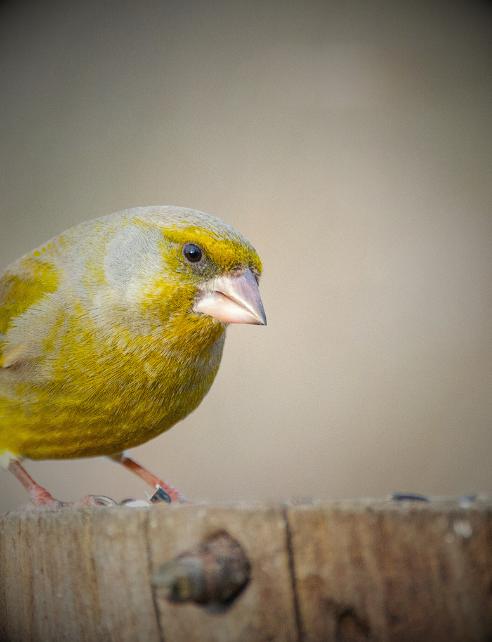
WELL DONE! Fiction WELL READ MAGAZINE 104
Casie Bazay is the author of the YA novel, Not Our Summer (Running Press Teens, 2021) and has a short story appearing in As We Convene: An Anthology of Time and Place from Inked in Gray Press (May, 2024). After leaving the teaching profession nearly 13 years ago, Casie has worked mainly as a freelance writer, specializing in equine health and care. She has hundreds of articles and blog posts published with various companies and publications such as The Horse, Country Extra, Natural Horse Magazine, Oklahoma Horses and more. Casie’s other full-time job is mothering two wonderful but headstrong children and many (less headstrong) four-legged pets.
THE OLD WOMAN AND THE BIRDS by Casie Bazay 105 MARCH 2024 ISSUE NO. 20
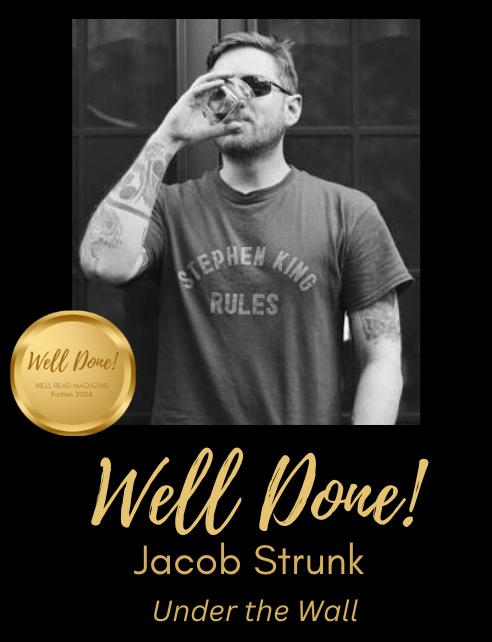
WELL DONE! Fiction WELL READ MAGAZINE 106
Under the Wall Jacob Strunk
Young man! Hallo! You areAmerican, yes? Oh, you’re easy to spot, all right. Please, sit down. Have a drink on me. You’d like a beer? Ein Diesel, Frank. Please, please, bitte. I’ve seen you three times this week, always alone with your book. So serious! Please, drink. Talk to an old man. Yes, you like it? Dark beer and cola. Good for these warm nights. Prost! How is your Deutsch?
Yes, in England for nearly twenty years. I’m sure you’ve already learned that Berlin is a terrible place to learn German. It’s easier for us to speak to you in your English, and requires less patience. Ha! You’ve taken a flat on Gaudystrasse. Like I said, you are easy to spot, and when you get to my age, there’s not much to do but watch the people pass by and bore them with reminiscences. I was born not far from here, and I’ve lived many years in Prenzlauer Berg. Oh, yes, unspeakably different then. My
UNDER THE WALL by Jacob Strunk 107 MARCH 2024 ISSUE NO. 20
boy, where we sit now on this beautiful evening was a cold, dark place, colorless, and I grew up in the rubble from the war. Yes, yes, the Wall. You are likely too young to remember the fall, but you read about it in school, I think. You’ve heard the David Bowie song, saw the video of David Hasselhoff. I was not! We were in London then.
Well, since you asked—and don’t say you weren’t warned!—it happened right around the corner, not far from your Gaudystrasse flat. I can tell you our homes weren’t as cozy as they are now, but we worked hard to make them so. My wife and I lived just a couple blocks from here. Yes, she was—what do you say inAmerica?— she was quite a looker. We were young when the Wall went up. I was twenty, and she was eighteen. We’d just been married that July. When I tell you it happened overnight, you must believe me. Every word of this story is true, though you won’t want to believe it. We went to bed one night, business as usual, and we woke the next day to checkpoints, to razor sharp wire, to the sound of machines lifting concrete slabs into place.
Well, yes, it was awful! Cut off the from the world, from our families, from our jobs. We had friends in the west, lives.And just like that, we were sealed in. My boy, it was like a tomb, a tomb big enough to fit all of our dreams, all the hopes we had for our lives. Buried in the ground. We’d dreamed of children, as all young couples do, but Elsa’s
WELL DONE! Fiction WELL READ MAGAZINE 108
family was on the other side of the Wall, and she could no longer imagine a life with children, with laughter. She fell into such a state, and so she remained for years.Always a reader, a bright mind, she was assigned work as a seamstress. I worked as a clerk.And so it was for many years for us, all of us. Everyone knew people who disappeared, never arrived to work or returned a call, their flats emptied in the night. No letters or calls, no warnings. The information, the press, it was all controlled. You never knew what to believe.
Oh, I’ll get to that. Don’t you worry. Yes, it’s good, isn’t it?Another? Of course! Frank! Zweimal, bitte!
My brother Karl first mentioned to me the tunnel in 1976. He called me down to the street, asked me to come with him. He said he needed my help moving a wardrobe. Now, I knew right away something was wrong, because Karl didn’t have a wardrobe. He lived alone, his wife having taken ill and died in—oh, it must have been 1968 or 1969. He didn’t remarry, he lived very simply then, and I’d never known him to have much use for anything as elaborate as a wardrobe in the one room flat he kept on Christinenstrasse.
I followed Karl down ShönhauserAlee to a public house, not unlike this one where we sit now, past the bartender with a nod, and into a back room. There were no windows, and the air was thick with cigarette smoke. I
UNDER THE WALL by Jacob Strunk 109 MARCH 2024 ISSUE NO. 20
never smoked because of my asthma. There were two other men in the room, each with a beer, and Karl closed and latched the door behind us. Karl lit his own cigarette, the three men leaned in close, and that’s when they told me about the tunnel.
The two of them had begun planning a month or two before this, it seemed, with the help of a friend on the other side who was granted permission to cross over to East Berlin twice each week to deliver bread and canned goods. They had found a building they thought would work, an abandoned row house, uninhabited since the war, with a shallow earthen cellar. It was fifty yards from the Wall, a straight shot to a bombed-out warehouse on the other side where sympathetic westerners were eager to help, right at the end of your block where the park is now. Yes, Mauer Park, with its beer gardens and suntanning women!
We all knew about the tunnels, of course, and that included the Stasi. You know what I mean, the secret police? Why, just the week before they’d raided a tunnel not a mile north of here and arrested the three young conspirators in the act of digging. They’d almost broken through. My boy, they were mere feet from freedom! Yes, terrible. No, I don’t know what happened to them, but likely they were sent to a work camp, and their fates were never relayed to those of us still here. No one’s were.
WELL DONE! Fiction WELL READ MAGAZINE 110
Well, these two men had approached Karl for his help, knowing he did not have a family, and Karl had brought me.And now, for better or worse, we were all conspirators. In 1976, young man, this could be a crime punishable by death. Or worse.
We worked at night, digging in shifts. Two in the tunnel, and two standing watch. It was my third shift on watch that I first heard it.Ahowling, but not like any animal I’d heard before or since. Ha! Yes, I see your look. Incredulous, youAmericans would say. But I told you every word of this story is true, whether you choose to believe it or not. The nights then were quiet, desolate, and the Stasi had microphones buried all along the Wall, listening for the sounds of the tunnels. We were as quiet as we could be, and it was cold that night. November, this was, or maybe early December. Not yet Christmas. The others would sit by the window in the dark, carefully concealing their cigarettes. But I didn’t smoke.And this night, I decided to step outside, just a few minutes, to stretch my legs, cramped from my hours working a trowel and bucket in the hole.
The howl seemed at first to come from all around me, filling the empty streets, bouncing off the battered buildings, most of them empty. My blood went cold, I tell you, and I froze with fear. What on earth could make such an unearthly wail here in the city? Something escaped
UNDER THE WALL by Jacob Strunk 111 MARCH 2024 ISSUE NO. 20
from a zoo, I thought, or a family’s dog gone rabid. But I heard it again, long and mournful. The moon was bright and full that night, but I saw nothing. No movement, not man or beast, and I hastened back inside and into the empty flat with the trap door to the cellar.
Karl, I whispered to my brother, dozing on a low mattress in the corner. Karl, there is something outside.An animal. But he dismissed me. I stayed at the window, low to the floor, my eyes peering over the sill until just before dawn, when Heinrich and Markus raised themselves up through the trapdoor, exhausted, and we silently packed our things and left for the night, sliding the old mattress and some broken crates over the entrance to the cellar. I didn’t mention the howl to anyone, not Heinrich or Markus, not Elsa, who was waiting up when I returned home with tea and sausages, as she always did on nights we dug.
The work continued through December, and by the new year it seemed we were close to breaking through. Progress reports were passed in secret on the bread truck. Plans were made. We knew then we had to be more careful than ever. If we were discovered, well, you can imagine. Like I told you before, lots of people disappeared in those days, and everyone knew better than to ask too many questions. Elsa managed to get word to her parents on the bread truck, and suddenly everything was happening.
WELL DONE! Fiction WELL READ MAGAZINE 112
Here now, I must pause to use—I believe you’d say in America—the pisser. One more round, yes? You’ll order it for an old man who may take more time to squeeze it out than you’re used to.And one more for yourself, bitte.
Apologies for the delay, dear boy. It’s not as easy as it once was.Ah, yes, another waiting for me. Jawohl! Now, I was… yes, of course. It was Heinrich’s idea to leave the night we did, early in January when the moon was once again full and bright and high in the sky. We suggested, I suggested we wait for the new moon or the next winter storm, that our chances were better under cover of darkness. But Elsa agreed with Heinrich, so desperate was she to leave Berlin, to leave Germany, and reclaim her chance at a life.
And so we gathered that night at midnight, each of us sneaking down Gaudystrasse, past your very window, I’m sure. Karl was already there when Elsa and I arrived.And Markus followed close behind. But no one had seen Heinrich, nor spoken to him. Fearing the worst, we weighed our options.Again it was Elsa who persisted. She dropped into the darkness of the tunnel, fearless, so quickly we hadn’t even a chance to turn on the electric lights we’d wired along the entire length. I switched them on and crawled into the tunnel behind her, beckoning Karl to follow.
It was then, crouched in the tunnel entrance, that I heard
UNDER THE WALL by Jacob Strunk 113 MARCH 2024 ISSUE NO. 20
the howl through the broken windows. It filled the building, seeming to occupy every room and stairwell, loud enough that I could feel the chill call in my bones. Markus and Karl looked at each other, then at me. But we barely had time to whisper before the door burst in, splintering and filling the room with terror. My boy! I thought surely this was it, that all my days had led to this moment in which I’d be torn to pieces by some foul beast from a hell I didn’t believe in and couldn’t imagine.
It was a beast from hell, that’s true, ja, but no animal. Heavy black boots stomped into the room in a blaze of bright light, and from the doorway tumbled poor Heinrich, beaten to a state I’d never before seen a man. One glazed eye looked at us dimly, helplessly. The other was swollen shut. His nose and jaw were broken. One of his arms fell limply at his side, dislocated.Above him towered three men in grey uniforms, drab but for the wash of blood on their cuffs and lapels. The moment seems frozen to me even now, my boy, all these decades later. So clear is it, I can almost now smell Heinrich’s blood and sick, hear him choking on it there on the floor.
Markus screamed something, what I do not recall, and here everything speeds back up. It’s fragments, you see. Markus screaming, charging, meeting the butt of a gun.
Calling for Karl, I lowered myself into the tunnel. I could see Elsa far beyond me, almost to the other side,
WELL DONE! Fiction WELL READ MAGAZINE 114
already under the Wall, past it, almost free. If we could just make it a little further. I crawled toward her, calling again for Karl. Behind me I heard the Stasi shouting orders, heard Markus cursing them. I heard Karl drop into the tunnel’s entrance behind me, call my name. I heard a gunshot. Two.And then Markus was silent.And then—
Let me take a moment, take a drink. I haven’t told this story in many years, but even now… Let me just have a drink. What I describe to you now will seem unbelievable, yes. But look into my eyes as I speak and know it is true.
From the room behind us came then a sound I still hear in my nightmares. It was a snarl, a roar, but not of any dog I’d ever heard, nor any bears from the Bärenzwinger in Köllnischer Park. It was hunger I heard.And rage.And then the screams started, sounds I’d never known a man to make, and the wet crack of bones. I could hear the men, the Stasi, being torn like paper. I didn’t dare turn to look behind me then.Ahead of me, yes, I saw Elsa in a halo of light. She’d broken through!And then I saw her pulled up and out.Ahead popped down, a man I’d never seen, who held a torch—excuse me, a flashlight. He beckoned at me to come, schnell! I crawled forward as fast as I could.
And then another scream behind me did make me pause. It was Karl I heard. But he shouted at me to go on, keep crawling.And I did. I was greeted at the other side— the free side—by two men. They pulled me up. Elsa was
UNDER THE WALL by Jacob Strunk 115 MARCH 2024 ISSUE NO. 20
sitting in the corner of the well-let room, her eyes wide, her arms wrapped around her legs, which were pulled to her chest. Was ist das?! one of the men shouted while the other moved to cover the hole in the floor they’d prepared for our breaking through.
Nein! I said, my hands on the man’s shoulders. My brother, I said, my brother is still down there. I took the torch and dropped to my knees, leaning forward into the hole. Karl was close, but moving slowly and wincing with great pain. I reached forward and grabbed hold of his arms, pulling with all my might. The two west Germans grabbed my belt and pulled both of us up, dragging me across the dusty floor until Karl himself rolled free of the hole and I saw for the first time the oozing wound on his leg. He put his hands on it, squeezing, and blood poured out between his fingers. Elsa went to him. She unbuckled his belt, pulled it free from around his waist. I could see now the tears streaming from his eyes as Elsa wrapped the belt tightly around his leg. Three long gashes ran down his calf, so deep as to be black. Steam rose from the wound, from where his blood pooled on the floor beneath him.
But young man, I had to know.And so I turned from my brother, from my wife, from the two men who’d risked their lives to free ours, and I once more leaned into the freezing darkness of the tunnel and peered back to the east, under the Wall.At the other end, I could just make
WELL DONE! Fiction WELL READ MAGAZINE 116
out something in the far entrance of the tunnel, something blocking almost all the light there. I shined the flashlight and—on my life—saw two eyes looking at me, glowing in the reflected light a deep green. Like nothing I’d ever seen. It was… they were beautiful.And then, just as quickly, they were gone, and the hulking shape moved away from the tunnel’s entrance, and then I heard —we all heard—the screams again.
We hoisted Karl up, his arms draped over our shoulders, and shuffled out of the room, down a short hall, and out a door into the bright, moonlit night in West Berlin.Acar idled at the curb, and we took our first steps toward it— toward redemption.And then a volley of gunfire erupted from the east. Not from the tunnel, that black mouth we’d left to gape in the decrepit warehouse, but from over the Wall, from the building we’d entered from the street and left through the ground. We all turned, and we saw the flashing lights, heard the wail of sirens. Even here, the calls of the Stasi carried on the still winter air and knew they were storming the building.
And then the strangest thing yet happened, if you can believe it. I felt Karl’s weight lift from my shoulder, and when I turned to him, he was gazing not toward the Wall as we were, but up.At the moon, full and white as a saucer in the black sky.And he took a step back, away from us, then another. He looked at me, and his eyes seemed bright
UNDER THE WALL by Jacob Strunk 117 MARCH 2024 ISSUE NO. 20
in the night. Elsa was already at the car, our two new friends with her, and I held my hand out to Karl. Jetzt, Karl. Wir mussen —
But then he was gone, running back toward the building. The belt Elsa tied around his leg popped and dropped to the ground, its buckling clanging on the concrete.And as Karl entered the warehouse again, for the last time, he turned to me and held up a hand I could see was turning into something else. He disappeared into the building. I got into the backseat of the car with Elsa, and it pulled away from the curb. We didn’t look back. We never looked back.
I see your hand tremble as you light your cigarette. No, please do. I have never smoked, but I like the smell. It carries memories. Elsa’s parents had arranged papers for us, and travel through theAmerican sector to a train that would take us through Belgium, then onto a ship. We were met upon landing in England by Elsa’s distant cousin, Brock, and his wife Maris, who brought us to their home, where we stayed for six months. I found work doing the books at a foundry, while Elsa pursued her studies and eventually gained a professorship.And yes, I can see now you want to ask, we did have a daughter. She is there now, still, with her husband, her own children grown. But she comes to visit me when she can, and I do enjoy the Christmas holiday in London when I’m able.
WELL DONE! Fiction WELL READ MAGAZINE 118
Elsa never set foot in Germany again. I stayed for a while after she died, but eventually my country called to me. I could scarcely believe it when I stepped off the airplane. How vibrant, I thought, how colorful!And here I am, an old man at his favorite bar, telling stories, boring young men with lives left to lead. Ha! That’s how it should be, don’t you think? We have a word in German, Weltschmerz. You’ve heard it? For a long time, I let that fill my heart. It’s hard to think of the friends we left behind, those who disappeared before us. But I suppose we, too, left in the night without a trace, and we were lucky to write our own story, Elsa and I. It brings me joy to tell it.
Ah! It’s late for an old man. I best get back before these catch up with me and I fall asleep here in Frank’s bar. I don’t have the endurance I used to, the endurance of a young man like you! You’re writing your own story, aren’t you, here in Berlin.And I hope you’ll tell it to me. Maybe right here at this table! But another time. Now I must be going. The sun is gone. The moon is high.
One more trip to the pisser for me, and then I believe I will walk home the long way, through the park.
UNDER THE WALL by Jacob Strunk 119 MARCH 2024 ISSUE NO. 20

WELL DONE! Fiction WELL READ MAGAZINE 120
Jacob Strunk has been short-listed for both a Student Academy Award and the Pushcart Prize in fiction, as well as the Glimmer Train short story award and a New Rivers Press book prize. His films have screened in competition and by invitation across the world, and his genre-bending fiction has appeared in print for over twenty years, most recently in Coffin Bell, Five on the Fifth, and his collection Screaming in Tongues, published in 2023. He earned his MFA in creative writing from the University of Southern Maine’s Stonecoast program and teaches film and media in Los Angeles, where he lives with a few framed movie posters and the ghost of his cat, Stephen.
UNDER THE WALL by Jacob Strunk 121 MARCH 2024 ISSUE NO. 20
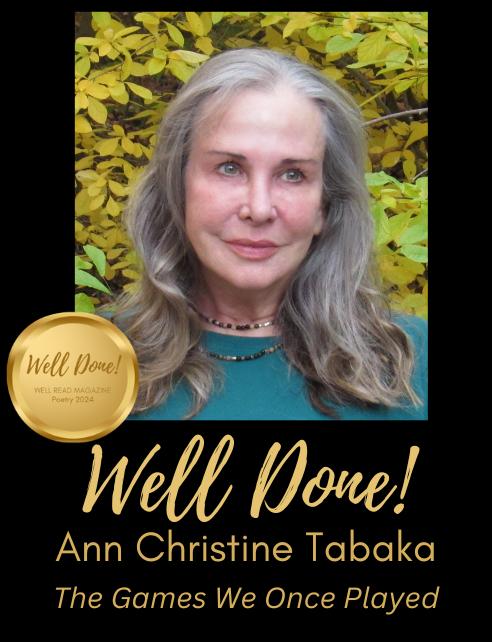
WELL DONE! Poetry WELL READ MAGAZINE 122
The Games We Once Played
Ann Christine Tabaka
Love is a Game that we once played upon the forest floor // hidden under branches of lust // shaded by desire. Wood Thrush gave her all, singing a mournful tune.I joined in her chorus as I lay abandoned by rusting trees. Wind tore me asunder while clouds closed in // your breath left me empty. I reached out // fingers piercing the storm // to draw you back to me. Promises of forever lingered on your lips as the sun set behind tree tops. Evening folded in around us // silence falling like a stone. The thrush did not look back as she flew south // leaving her hollow nest behind.
THE GAMES WE ONCE PLAYED by Ann Christine Tabaka 123 MARCH 2024 ISSUE NO. 20
Ann Christine Tabaka was nominated for the 2017& 2023 Pushcart Prize in Poetry; nominated for the 2023 Dwarf Stars award of the Science Fiction and Fantasy Poetry Association; winner of Spillwords Press 2020 Publication of the Year; selected as a Judge for the Soundwaves Poetry Contest of Northern Ireland 2023. Her bio is featured in the “Who’s Who of Emerging Writers 2020” and “2021,” published by Sweetycat Press. She is the author of 16 poetry books, and 1 short story book. She lives in Delaware, USA. She loves gardening and cooking. Chris lives with her husband and four cats. Her most recent credits are: The Phoenix; Eclipse Lit, Carolina Muse, Sand Hills Literary Magazine, Ephemeral Literary Review, The Elevation Review, The Closed Eye Open, North Dakota Quarterly, Tangled Locks Journal, Wild Roof Journal, The American Writers Review, Black Moon Magazine, Pacific Review, The Silver Blade, Pomona Valley Review.
WELL DONE! Poetry WELL READ MAGAZINE 124

THE GAMES WE ONCE PLAYED by Ann Christine Tabaka 125 MARCH 2024 ISSUE NO. 20

WELL DONE! Poetry WELL READ MAGAZINE 126
Accident
Joan McNerney
If only it had not rained the sky black and wet as we hurried across streets. Perhaps had he worn a light coat it would have been easier to spot. Maybe if the cab driver were not so tired, if headlights shone brighter. How many hundreds of things
ACCIDENT by Joan McNerney 127 MARCH 2024 ISSUE NO. 20
lead him to that corner. For instance staying late to check computer printouts. The cab driver had felt like going home at six but had a recent rent increase. Everything led to the cab slipping along 3rdAvenue. Him in front of his office and then lunging out to avoid a puddle.
There was no one to blame nothing to blame really not the rain or the dark coat not the dim lights nor the cab driver who would remember this always
WELL DONE! Poetry WELL READ MAGAZINE 128
and sometimes blame himself.
It was part of a series of events of time and place leading to this conclusion. An ambulance screamed down the avenue. His eyes wide open as he lay facing the black night. His time finished eyes opened as if staring at something quite different now.
ACCIDENT by Joan McNerney 129 MARCH 2024 ISSUE NO. 20
Joan McNerney has been the recipient of three scholarships. She has recited her work at the National Arts Club, New York City, State University of New York, Oneonta, McNay Art Institute, San Antonio and the University of Houston, Texas, Published worldwide in over thirty five countries, her work has appeared in literary publications too numerous to mention. Four Best of the Net nominations have been awarded to her. The Muse in Miniature, Love Poems for Michael and At Work are available on Amazon.com A new release entitled Light & Shadow explores the recent historic COVID pandemic.
WELL DONE! Poetry WELL READ MAGAZINE 130

ACCIDENT by Joan McNerney 131 MARCH 2024 ISSUE NO. 20
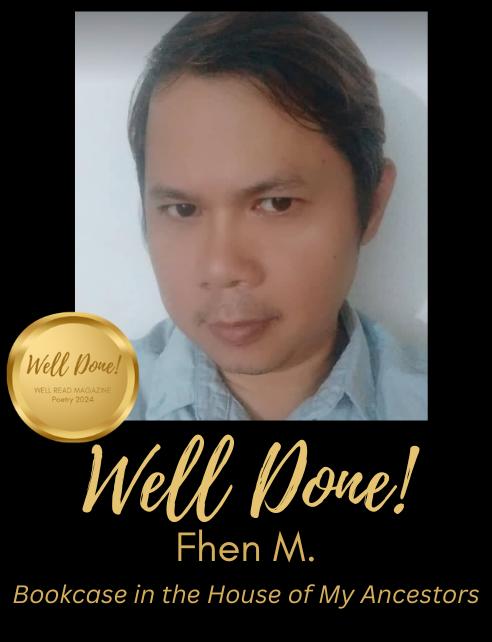
WELL DONE! Poetry WELL READ MAGAZINE 132
Bookcase in the House of MyAncestors
Fhen M.
beside the sea, wind kept on blowing the scent of the mangrove tree and salt water I smelt inside the room of Grandma Neming; in the cool afternoon, the old woman's sleeping I was the only one awake in the house of my ancestors. those were my childhood days when internet was not yet public; in the bookcase made of plywood and nails located in the old woman's bedroom, imprints of periodicals and books my only companion.
BOOKCASE IN THE HOUSE OF MY ANCESTORS by Fhen M. 133 MARCH 2024 ISSUE NO. 20
my old auntie, a teacher who had no husband in the afternoon, she went to school the published materials like Journal and Panorama she gathered in her wooden bookcase and every vacation, I read and study them. for instance, I'll read poems with four lines in a stanza and rhythm and rhyme; Rizal, Bonifacio, these poets were my only friends and other writers with their published works.
I keep on writing ambahan poetry arguing with my imaginary friends; near the shelf of books, I smell the scent of mangrove trees and salt water.
WELL DONE! Poetry WELL READ MAGAZINE 134
Fhen M. studied the academic subjects Writing in the Discipline, The Literature of the Phillipines, and The Literature of the World at Eastern Visayas State University. The Waray poem “Uyasan” (“Toy” in English”) written by Fhen M. was published in a collection of literary works entitled Pinili: 15 Years of Lamiraw. His English verses "Lighthouse," “Seaport,” “Barbeque Stalls along Boulevard,” and “Tetrapod” appeared in Poetica anthology series published by Clarendon House. In 2024, Red Penguin Books’About Time: A Coming of Age Poetry Anthology will publish his piece “Outside the Block Universe". One of his poems will also be included in Flora/Fauna Anthology by Open Shutter Press. Fhen M. submitted verses in Waray for the 5th Lamiraw Creative Writing Workshop, including the siday “Duha nga mga pagtug-an” (translated in English as “Two confessions”). David Genotiva, Merlie Alunan, and Victor Sugbo were some of the distinguished panelists of this writing workshop held from the 5th to the 7th of November 2008.
BOOKCASE IN THE HOUSE OF MY ANCESTORS by Fhen M. 135 MARCH 2024 ISSUE NO. 20
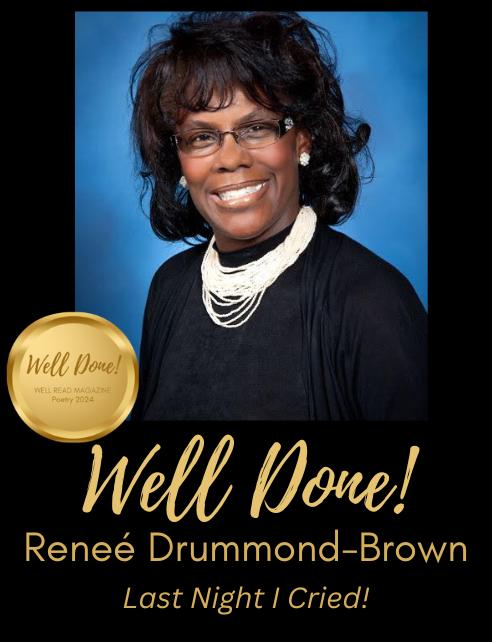
WELL DONE! Poetry WELL READ MAGAZINE 136
Last Night I Cried!
Reneé Drummond-Brown
Last Night I Cried!
I cried for the babies
Which are born
I cried for the brokenness
Of family, foe and friends
Which are torn
I cried for the siblings
Trying to make it in
I cried for the children
And their generation
I cried for the homeless
And their friends
I cried for the wife
LAST NIGHT I CRIED by Reneé Drummond-Brown 137 MARCH 2024 ISSUE NO. 20
And her husband
I cried for the elderly
And their present condition
I cried for the teachers
And this so-called education
I cried for the Preachers
And their salvation
I cried for the widows
And their humiliation
I cried for both saved and unsaved
Without hesitation
I cried for the President
And our Nation
I cried for foreign countries
And their kin
I cried for racism
And the very present discrimination
I cried for the apartheid
And the segregation
I cried for poverty
And the ghettoization
WELL DONE! Poetry WELL READ MAGAZINE 138
I cried for loneliness
And resentment
I cried for seclusion
And isolation
I cried for divorce
And the separation
I even cried for self
And my own Unforgiving sins!
But
On today
For ‘EVERYONE’
I prayed
For a new start
With a brand new begin
But
Until hearts change
On tonight
I’ll start crying all over again
LAST NIGHT I CRIED by Reneé Drummond-Brown 139 MARCH 2024 ISSUE NO. 20
Reneé Drummond-Brown is a renowned author born on Marine Corps Base Camp Lejeune, located in Onslow County, in southeastern North Carolina. Drummond-Brown now resides in Pittsburgh, Pennsylvania. Though she holds several degrees, she still rises towards the mark of higher education. DrummondBrown’s first book “Renee’s Poems with Wings are Words in Flight-I’ll Write Our Wrongs!” was published, 2015. She has since authored over 60 print books to date, including: Children's book, eBooks, Anthologies and Magazines. Drummond-Brown’s poetic works are recognized across the globe on both national and international platforms. Her literary work(s) have also taken flight in colleagues anthologies, churches, magazines, radio, videos, college libraries and universities. Drummond-Brown’s work addresses societal ills and woes that plague less fortunate people. Her books and eBooks can be purchased on Amazon, AuthorHouse, and Westbow Press bookstores.
WELL DONE! Poetry WELL READ MAGAZINE 140

LAST NIGHT I CRIED by Reneé Drummond-Brown 141 MARCH 2024 ISSUE NO. 20

WELL DONE! Poetry WELL READ MAGAZINE 142
I Tried
Steven Kent
I tried to be a guru but the hours were too long
With meditation, prayers, and mindful thinking. The money and the groupie girls were great, don’t get me wrong,
But then they said I’d have to give up drinking.
I tried to be an idler, but the labor was too much; Each day the odds of my success diminished.
With this and that and how and why and when and where and such,
I never really knew when I was finished.
I tried to be a sculptor, next a painter, then a bard, My lack of any talent notwithstanding.
I TRIED by Steven Kent 143 MARCH 2024 ISSUE NO. 20
It wasn’t that the work, per se, was really all that hard, But self-promotion proved much too demanding.
I tried to be a dreamer but the dream just wouldn’t call; I never gained that land of milk and honey.
Imagine no possessions, it’s not hard to do at all
Said someone with a pocketful of money.
I tried to be a critic, with an arbitrary pen Dispensing deadly darts of fiery censure.
But being judge and jury left me jaded in the end
And robbed me of the taste for that adventure.
I tried to be myself at last; so far it’s going well.
I play the role with pride yet self-effacement.
I hope the show goes on for years, though you can never tell—
Tomorrow they might send in my replacement.
WELL DONE! Poetry WELL READ MAGAZINE 144
Steven Kent is the poetic alter ego of writer and musician Kent Burnside (www.kentburnside.com). His work appears in 251, Asses of Parnassus, the Journal of Formal Poetry, Light, Lighten Up Online, Philosophy Now, Pulsebeat Poetry Journal, and Snakeskin. His collection I Tried (And Other Poems, Too) was published in 2023 by Kelsay Books.
I TRIED by Steven Kent 145 MARCH 2024 ISSUE NO. 20
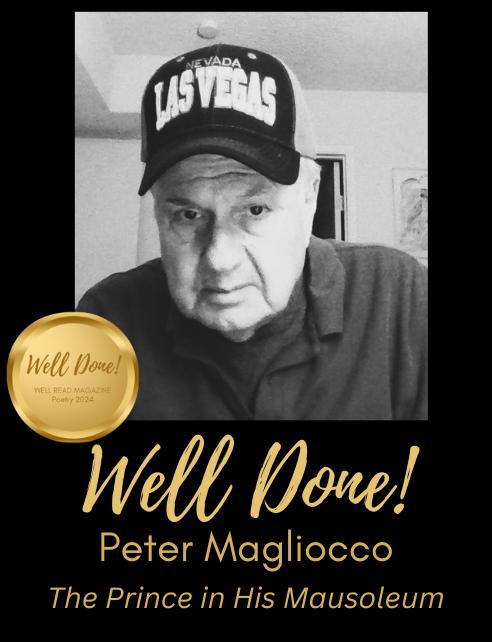
WELL DONE! Poetry WELL READ MAGAZINE 146
The Prince in His Mausoleum
Peter Magliocco
The sun cries in me
Bringing morning light
To old dementia seeking me
Where lust never tastes
Sorrow’s song
There you are, in rubicund spirit,
Waiting in an airport lounge
For life’s madness to depart.
Reading about The Prince who seduced Virgin interns running from reality (like us?),
Eclipsed finally by His dark, wind-sheared hand.
Ruling us in a summer of no-escape
Turn off your cell phone’s drama.
THE PRINCE IN HIS MAUSOLEUM by Peter Magliocco 147 MARCH 2024 ISSUE NO. 20
Purge please the world’s morbid images
Re-running on U-Tubes
Channeling flights of the mind’s discontent.
In this ground-zero lounge I simulated
Your lobotomy for grounded pilots
As the passengers watched
In time’s wingless mausoleum rusting Sodden with your discarded matter, & speckled by regal words of wonder
Your hyacinth eyes fatally cloud
His Fallen Majesty
WELL DONE! Poetry WELL READ MAGAZINE 148
Peter Magliocco writes from Las Vegas, Nevada, where for years he’s been active in the small press as writer, poet, artist, and editor of his lit-zine ART: MAG. He has recent poetry in online and printed places like Knot, Zin Daily, Fevers of the Mind, Impspird, and elsewhere. His recent poetry book is Night Pictures from the Climate Change (Cyberwit.net).
THE PRINCE IN HIS MAUSOLEUM by Peter Magliocco 149 MARCH 2024 ISSUE NO. 20

WELL READ MAGAZINE 150
HELLO
WRITERS &ARTISTS
CALLFOR SUBMISSIONS IS OPEN!
*No prompts or themes - no boundaries*
WELL READ is looking for submissions from writers and artists who have stories to tell –through words and art. We combine new and established voices from diverse backgrounds and celebrate different perspectives. We want people who aren’t afraid to shake things up, speak their mind, and share their humanity.
Click here for SUBMISSION GUIDELINES

CALL FOR SUBMISSIONS 151 MARCH 2024 ISSUE NO. 20
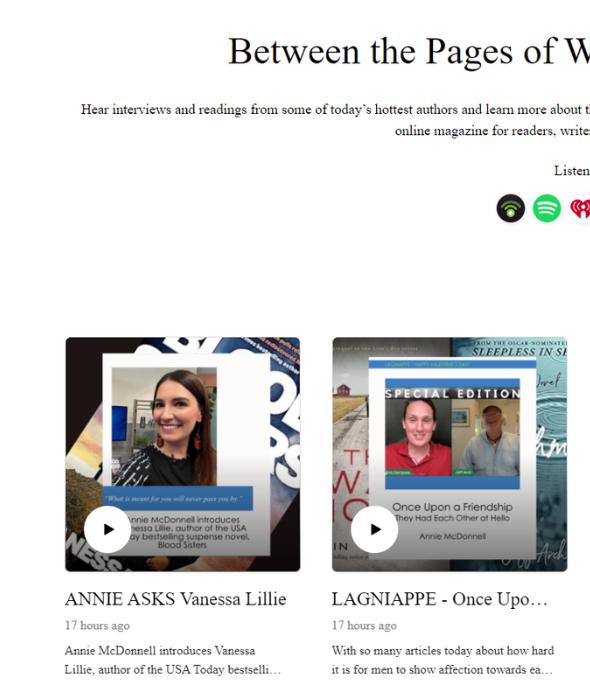
BETWEEN THE PAGES PODCAST WELL READ MAGAZINE 152

BETWEEN THE PAGES PODCAST 153 MARCH 2024 ISSUE NO. 20
THE WRITER’S EYE
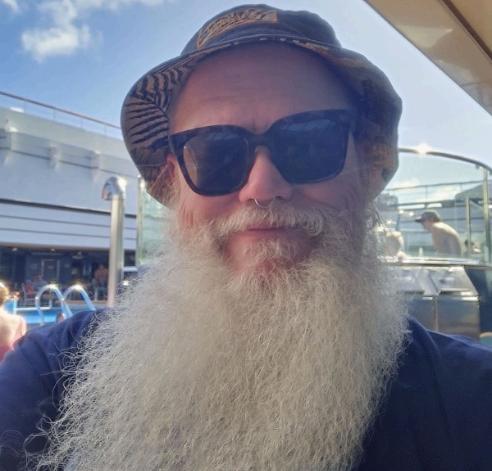
Watching The Classics
From A Different Point View
WELL READ MAGAZINE 154
Recipe for a classic screwball comedy:
1 handsome husband with a roving eye
1 beautiful wife with a great singing voice
1 dog with personality plus
The seasoning: Cary Grant, Irene Dunne, Ralph Bellamy, andAsta from The Thin Man Movies.
Jerry Warriner returns home from an alleged trip to Florida to get some sun to find his wife Lucy missing. She turns up soon, however, having spent the night out with her handsome, somewhat oily, voice teacher. The teacher’s car ran out of gas, but Jerry doesn’t believe it. Jerry tosses Lucy an orange he brought back from Florida, only Lucy discovers the word California stamped on it. Lack of trust is important in marriage, and now neither trusts the other. We then find Lucy and Jerry in divorce court. Jerry is contesting custody of Mr. Smith (akaAsta) whom he bought for Lucy during their first meeting. Lucy gains custody using a little trick, and she moves into an apartment with Mr. Smith and her aunt, the inimitable Cecil Kellaway.Across the hall live handsome Ralph Bellamy (an aw-shucks oil millionaire) and his suspicious mother. Cary has taken up with a nightclub singer. Of course they still love either other and are jealous, but
THE WRITER’S EYE with Dean James 155 MARCH 2024 ISSUE NO. 20
neither is willing to talk about it.After a series of screwball events, they wind up stuck together in a mountain cottage. Will they reconcile before the divorce decree is final?
What can a writer learn by watching this film?
The script uses one of the tried-but-true tropes in contemporary romantic fiction, The Great Misunderstanding. We all know if they sat down and talked this out, telling the absolute truth, they could quickly get back together. The awful truth is that they don’t, because once burned, they have to decide they love each other enough to start trusting again.
This movie is a primer on how to blend comedy and sexual tension seamlessly, albeit in a screwball fashion.

THE WRITER’S EYE with Dean James WELL READ MAGAZINE 156

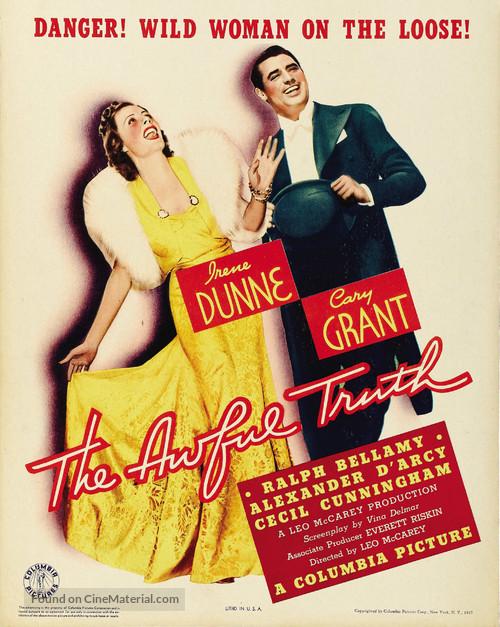
THE WRITER’S EYE with
157 MARCH 2024 ISSUE NO. 20
Dean James
CLAIRE CONSIDERS
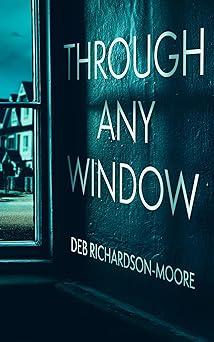
THROUGH ANY WINDOW by Deb
 Richardson-Moore
Richardson-Moore
LET’S REVIEW! WELL READ MAGAZINE 158
Through Any Window by Deb Richardson-Moore
Reviewed by Claire Hamner Matturro
Readers, I invite you to dive right into Deb RichardsonMoore’s new book, “ThroughAny Window” (RedAdept Publishing 2024)—but be sure to set aside a couple of days of uninterrupted time because you will not want to put this wickedly clever mystery/thriller down until you’ve turned the last page. What makes “ThroughAny Window” so compulsively readable? It’s not just the “who done it?” and “what happens next?” attributes of this engaging, character-driven, and intriguing novel that will keep you focused, but also the way the author quickly whisks readers into the turbulent world of her characters. This book is a stellar example of mystery fiction at its sharpest.
The author does not dally around but jumps right into a double murder on the first few pages, but murders with a witness who does not quite understand what she saw—or thought she saw. Protagonist Riley Masterson, a young college drop-out woman on a kind of lam from her own life, wakes in a bedroom in her cousin’s pool house. She is supposed to be at work, but left early, so no one would
CLAIRE CONSIDERS THROUGH ANY WINDOW by Deb Richardson-Moore 159 MARCH 2024 ISSUE NO. 20
expect her to be in the pool house. She hears a noise and “slipped from the bed that wasn’t hers, clutching a lightweight comforter as a shield.”
Atmospherically drawn, these opening scenes set a tone and lift the suspense right off the page. “Outside, storm clouds blackened the sky, but pool lights gleamed through the glass doors and illuminated two people on the sofa, half-dressed, entwined.” Yet the couple and Riley are not the only ones in the pool house. In the kitchen doorway, twenty feet away, another figure stands watching. To Riley’s horror, that person slowly raises an arm and points a gun. Before Riley can scream a warning, a shot rings out. In the first of many twists, however, the shot does not come from the figure in the kitchen. No, the noise of the gunfire comes from a different direction. Riley closes her eyes and rocks and rocks, thinking this couldn’t be happening again.
Couldn’t be happening again?
Riley, as readers will soon learn, was the lead suspect in a still unsolved murder of her older, married lover back in Mobile,Alabama. She was hounded by the police, which accounts for why she is living in her cousin’s pool house in South Carolina and waiting tables in a trendy bar and restaurant. Riley, a striking brunette, mocha-eyed wild child, is also a wee bit of an alcoholic, and so what she
CLAIRE CONSIDERS THROUGH ANY WINDOW by Deb Richardson-Moore WELL READ MAGAZINE 160
sees and hears and relates is sometimes a tad suspect. It might be accurate. Or not. The alcoholic blur is both character revealing and an essential element of the plot and provides a glint of an unreliable narrator.
The cast of characters, headed intriguingly by Riley, is diverse, with even the minor characters well drawn and carrying their weight. This motley band includes Cousin Mikala and her cheating, handsome banker husband. Mikala has body weight issues, social ambitions, and an outrageous, devious plan. Neighbors include a married same-sex couple, Cate and Savannah, and their adopted mix-raced teenage son. Watch for the heartwarming twist regarding the son, by the way. Savannah is the more dynamic of this couple, a gorgeous real estate developer who is so busy low-balling sales and ripping up older mill town houses to replace with mansions for the wealthy that she fails to see how destructive her greed is. However, her wife Cate—a gentle gardener—and the adopted son not only see this impact but they recoil from it.
Continuing the lively cast, Riley’s wilder sister, Rayanne, adds yet another puzzle, along with menacing vibes. The novel only slowly unravels the dark secret between the sisters, and this slow reveal keeps the suspense up as readers know something ominous is afoot but not quite what. To Riley’s dismay, Rayanne descends out of the past, promising to stay in the pool house for
CLAIRE CONSIDERS THROUGH ANY WINDOW by Deb Richardson-Moore 161 MARCH 2024 ISSUE NO. 20
only one night, but then ends up living in the main house with Cousin Mikala and her husband with no exit date in sight. This leads to another plot twist in which Rayanne’s malicious and manipulative scheme explodes headfirst into Mikala’s own devious plan.
Perhaps the most likable character in the novel is Caleb, a homeless busboy barely out of his teens who works at the restaurant with Riley. Caleb is the son of a selfcentered addict and is trying hard to escape the pull of both his mother and her dead ended way of life. He is also a person accustomed to being overlooked, which allows him to observe things others miss. Odds are against this man, who sleeps at night as a trespasser in neighbor Cate’s potting shed, which, not incidentally, provides him a clear view into the pool house from the window in the shed. He and Riley become unlikely friends, but this will be tested. Given his history, including past run-ins with the law, he is the perfect suspect in the double murder in the pool house.
The two police detectives who attempt to solve that double murder soon happen upon Riley’s own past as a suspect in the unsolved Mobile murder. When a Mobile detective lights into town, he might be convincing the local cops that Riley makes a better suspect than Caleb. The colliding investigations into the Mobile murder and the double pool house murders give the book an engaging
CLAIRE CONSIDERS THROUGH ANY WINDOW by Deb Richardson-Moore WELL READ MAGAZINE 162
police procedural gloss too.
But wait, there are yet a handful of twists in this crafty, impeccably organized, and well paced novel of suspense. There’s a rapist on the loose, a meth-head blackmailer, more conniving folks with hidden agendas, a dilapidated rooming house full of the recent homeless, rich people mad at the poor people and vice-versa, and a whole community angry at Savannah for misleading them. Some characters are not exactly who or what they first seem to be. Keep your eyes open for the delicious hints sprinkled throughout before all the loose ends come together in a truly surprising finish with multiple twists.
Additionally, a social message is woven into the plot with a theme that gentle gardener Cate captures when she says: “But it does matter how we make our living, how we live in the world.”Author Deb Richardson-Moore knows how to impart her theme and social message into the novel without being shrill, strident, or intrusive.As an author myself I appreciate the delicate hand with which Richardson-Moore infused her message about the downside of gentrification into the novel. I know how hard it is to convey a social theme like that without becoming overtly moralizing or sounding like a lecture. Yet she conveys the message clearly through her characters and plot while illustrating how gentrification of older, less wealthy neighborhoods creates homelessness and poverty
CLAIRE CONSIDERS THROUGH ANY WINDOW by Deb Richardson-Moore 163 MARCH 2024 ISSUE NO. 20
among those priced out of their homes and displaced. Rest assured, however, the social consciousness does not hinder this compelling and endlessly mysterious novel, but only enhances the story.
All in all, this is a grand and inviting mystery, with more than a hint of stalker/thriller, unreliable narrator, and police procedural rolled into the package. In other words, a novel with pretty much something for all readers. Bravo, Deb Richardson-Moore, for such a fine book.
CLAIRE CONSIDERS THROUGH ANY WINDOW by Deb Richardson-Moore WELL READ MAGAZINE 164

Author Richardson-Moore, a former national awardwinning reporter for The Greenville News, lives in South Carolina with her husband, where she enjoys gardening, volunteering, and public speaking. She is the author of five mystery/suspense titles and a memoir, "The Weight of Mercy," about her early years as a pastor among the homeless at the Triune Mercy Center in Greenville, S.C. Her books have been finalists in Killer Nashville competitions.
CLAIRE CONSIDERS THROUGH ANY WINDOW by Deb Richardson-Moore 165 MARCH 2024 ISSUE NO. 20


AUTHORS INTERVIEWING AUTHORS WELL READ MAGAZINE 166
Author to Author Interview with Toby LeBlanc and Amos Wright
AUTHORS INTERVIEWINGAUTHORS
Toby LeBlanc is a mental health therapist inAustin, Texas. Writing is a way his own stories can live alongside the ones he hears every day from others. Originally from Scott, Louisiana (the undisputed Boudin Capital of the World), Toby grew up in a world filled with French. Before you navigate away to search "boudin," know that it is a type of sausage with origins in France, which has since been perfected in South Louisiana using lots of rice and spice. Toby's lineage goes back to some of the first Acadians to land on the shores of Nova Scotia in the 1600s, only to be exiled one hundred fifty years later. Those exiles now make some of the finest food, music, and art the world has ever seen. Some of Toby's other writing can be found in Coffin Bell Journal, Deep South Magazine, and Barrelhouse Magazine. His upcoming short story collection Soaked (February 2025), which focuses on climate change and its impact on Louisiana culture, will be published by Cornerstone Press in Wisconsin.
Dark Roux is the story of a Cajun family simmering on the verge of burning to ruin.As Mardi Gras approaches, the Mouton family finds itself falling to pieces. Each is
167 MARCH 2024 ISSUE NO. 20
Toby LeBlanc and Amos Wright
struggling on their own. Will battles feeling out of place and his sexual orientation,Addie feels stuck in love and adulthood, Beatrice flails in her role as a mother, and John fights feeling weak. It is the death ofAuguste Chenevert–their patriarch–which shows them a way forward. Each must find what their culture means to them, and what they mean to each other. Told from each of the four family member’s perspectives in turn, Dark Roux is how Americanization impacts the most sacred of Cajun cultural mores. Dark Roux was a finalist for the National Indie ExcellenceAward in the Southeast region.
1. Being from Louisiana, you know there’s four types of roux: white, blond, brown, and dark, which cooks for the longest. The novel even opens with a roux recipe that I might have to try myself. Can you elaborate on the choice of dark roux?
Adark roux is the base of many Cajun dishes and is an integral part of our cuisine. Dark roux takes the longest because it has to be kept at a low heat. Patience is essential.Also, if you stop stirring the roux for too long it will burn. This was the metaphor I used to approach Cajun culture in the novel. Watching one's culture evolve takes patience and it is not something that can be rushed. It must change in its own time. But I also think Cajun culture
AUTHORS INTERVIEWING AUTHORS WELL READ MAGAZINE 168
Toby LeBlanc and Amos Wright
stagnates at times, threatening to burn down what has made it beautiful. We get stuck in the "old ways" of racism and xenophobia (and a foreigner to a Cajun may just mean they are from North Louisiana). In the book I try to challenge where we could stir more to keep our roux nice and smooth as the world, and its people, modernizes around us. Can we integrate with technology and continue to interact with the land in a respectful way? What does family look like now that there isn't a crop to look after, fishing lines to run, or cattle to herd? These are just a couple places our culture needs to be stirred.
2. In a region known for fluid racial identities, Cajun identity looms large, but it also shares the page with Black, Creole, and white identities. These racial fluidities and boundary formations are not lost on the characters. What is the novel telling us about these identities?
The term Cajun has been used in so many ways, by so many people, that I think it has become confusing - even to the people it originally described. I have listened to questions of lineage and its purity inside my ethnicity. I've been part of conversations where folks tried to explain away a part of their identity. But many of the cuisines, music, and speech we associate with Cajuns are really shared, and informed by, the other identities you just
169 MARCH 2024 ISSUE NO. 20
mentioned. We are all children of Louisiana and we have all brought our ingredients to the pot of gumbo: okra from the stolen People ofAfrica, ground sassafras from the Indigenous, roux from theAcadians, all creolized (term borrowed from Leah Chase, God rest her soul) to make something better.Auguste Chenevert, the patriarch in Dark Roux, wouldn't bother with which ingredient is the most important, or the most pure, but instead focus on how you stir them together.Adish is brought forward from the ingredients to make something that is of all its parts, but also something more. That's how it gets its character. He'd say character is what gives someone, or even a place, their flavor. Then he'd tell you to grab a bowl, sit down, and eat with your neighbor, who is probably your cousin anyway.
3. The Moutons are one of the most famous (infamous?) families inAcadiana going all the way back to the Louisiana governor,Alexandre Mouton. Naming the family Mouton was no accident. Can you elaborate on this decision?
There were two intentions behind this. First is the history you mentioned with the Mouton name. Governor Mouton was a plantation owner. There was also General Mouton who served in the ConfederateArmy. Since this family was closely associated with white supremacy, I
AUTHORS INTERVIEWING AUTHORS WELL READ MAGAZINE 170
thought it could add a bit of characterization to the bearer of the name in this story: John Mouton. John believes he deserves more simply because of who he is. He compensates for his lack of work, morality, and for his pain, by adhering to mores of those forefathers. There are plenty of other exhortations I'll let you read to find out. But the other reason I wanted to use the name is because it means "sheep" in French. When I thought of the family in this novel, I thought of how they were following (like little sheep) what they'd been told about their culture rather than finding out what the culture means to them.
4. Dark Roux contains a non-trivial amount of untranslated Cajun French and the characters code-switch between English and Cajun French depending on context and their interlocutor. Given that Cajun French has a history of officialAnglophone suppression in Louisiana, do you feel compelled to challenge this? What was the reason for the code-switching?
As I grew up, elders slipped into French when they had words not meant for the little ones' ears.Any multilingual person will tell you that language frames your world. Prairies and swamps make more sense in French to me. The code-switching you see in the book is how we actually talk. By immersing a reader in a world where one
171 MARCH 2024 ISSUE NO. 20
Toby LeBlanc and Amos Wright
language does not have complete dominance, I hoped to give a real, lived experience. I even debated on not italicizing the French lines in the novel (as I have seen other multilingual authors do lately). Though that would have madeAuguste's "Frenglish" even more difficult to read. It is not uncommon to hear a French word or three seasoning heavily-accented English. I've even heard recently that not only our French is considered a dialect, but our English, too. Speaking French used to be seen as a sign of ignorance; something to rise above. Language suppression happened so quickly in Louisiana that in two generations my family stopped speaking French at home. I'm happy to see so many language activists in Louisiana trying to preserve this integral part of who we are.
5. Mardi Gras is the most well-known cultural export of Louisiana. Even though Mardi Gras is not monolithic, as the cultural practices in New Orleans are not the same as the Cajun courir, the world knows Bourbon Street shenanigans the best. How do you write about such a hyper-localized, nuanced and unique event like Mardi Gras? What does this seasonal celebration mean to you as an author and to your characters?
“Will, the youngest in the novel, said "Mardi Gras is." Full stop. Each of the characters in Dark Roux lose
AUTHORS INTERVIEWING AUTHORS WELL READ MAGAZINE 172
themselves in the traditions. Writing their experiences of Mardi Gras set them up as three dimensional characters for me. While their experiences vary as much as a New Orleans vs. Church Point Mardi Gras, Carnival is available to anyone who is willing to give themselves over to it. When the drums of the high school band thump deep in your chest, when you run after a terrified chicken across mud and barbed wires, when you wake up drinking with your cousins and go to bed after dancing with strangers, when you let your mischievous self out and everyone is happy to see it, you will know Mardi Gras. It will find parts of you that you didn't know were there. Last weekend I was having a conversation about Mardi Gras with my daughter. She asked why I miss it so much (since I now live inAustin, TX) and I caught myself saying, "It's the only time of year everyone, no matter who they are, will feel some joy." But to remain true to the tradition, the aftermath of Mardi Gras in the novel is as important as Fat Tuesday. Since Mardi Gras is the beginning of the Catholic Lenten season, the torment and temptations that follow the party are many.
6.Acadiana is a region rich with artists, artisans, musicians, Creole cowboys, and culinary geniuses. How do you relate to these other aesthetic traditions? What does it mean to be a Cajun novelist? Would you describe
173 MARCH 2024 ISSUE NO. 20
Toby LeBlanc and Amos Wright
yourself thus?
It seems like I'd have to get Gino Delafose to knight me, to have George Rodrigue to speak my name from the beyond, or at least have Tim Gautreaux email me to say he liked Dark Roux before I'd count myself among the artists from this region. Is bowing a way of relating to the greats? The region I come from grows talent and brilliance better than it grows crawfish. The masters of the aesthetic traditions in Louisiana are all trying to depict what makes this place so unexplainable. Just like Keagan LeJeune showed perfectly in Finding Myself Lost in Louisiana, when you think you have it, that you finally found what makes this place home, it disappears down the bayou.At best, I hope to tell enough stories to further color the rich diaspora of art and culture that bursts from this area. I will never tire of the attempt to depict my culture, this beautiful way of living and relating, with people from outside Louisiana. But in honesty, I'm content to parler with "us" from Louisiana. Because when your gumbo impresses Maw Maw from down the street, that's something special.
7. I’ve recently become interested in Kundera’s concept of the unachieved in evaluating my own work. What do you think Dark Roux achieves and what is left
AUTHORS INTERVIEWING AUTHORS WELL READ MAGAZINE 174
unachieved?
I love this question. Dark Roux starts a conversation. What makes a culture? What makes an identity? What happens to culture whenAnglo-American superculture works at odds with their historical ethnic culture? What is worth keeping? How do you change what isn't working? How do you make room for everyone as the changes happen? What is left unachieved is, of course, are the answers to these questions.And the reason is simple: while the characters have their own answers, I haven't answered them for myself yet.Asking them is probably why I wrote this book. Once I do answer them for myself, maybe that could be another book.
8. You’re a mental health therapist. Like many marginalized groups, Cajuns are no strangers to intergenerational trauma from historical displacement and the 18th century Expulsion of theAcadians by the British fromAcadia. Without imposing historical or psychological determinism on the Mouton family, how does this shared history impact the characters?
The "Grand Derangement" (as we like to call it) still lives in the psyches of Cajuns today. When the British purposefully split families and cast them out to different
175 MARCH 2024 ISSUE NO. 20
Toby LeBlanc and Amos Wright
ports around the world it left us with the determination that we will never be separated again. You can see this struggle play out with bothAddie and Will in the novel. Both have different feelings about leaving Lafayette and their family, but both feel pressure to remain at home. To this day, few Cajuns live outside of south Louisiana. If anything we just move closer to one another. I lived in my grandmother's backyard. This is how, until the early to mid 20th century, we retained an insulated identity preserved in time. It's also how we remained one ofAmerica's internal foreigners.
9. What are you working on now? What projects do you have planned?
Right now I'm playing with a novella that focuses on grief, parenting, andAntarctica. I don't really know where it's going so I'm just along for the ride. I have a novel that I've been showing to some people and it was even a finalist in a contest. It's based during Hurricane Katrina in New Orleans and tries to tackle the racism, classism, and colorism of the city from eye-level. I'm also considering a follow up to Dark Roux that focuses more on how Cajuns commodified our culture. Stay tuned!
AUTHORS INTERVIEWING AUTHORS WELL READ MAGAZINE 176
Amos Wright is fromAlabama. His first short story collection, Nobody Knows How It Got This Good was published by Livingston Press (University of West Alabama) in 2018. Livingston Press published his first novel titled Petrochemical Nocturne in 2023.
The Mississippi River. HAZMAT. Boxing. Suicide by cop. New Orleans Saints football. Chemical explosions. TheAngola prison rodeo. Chlorine gas ghost ships. Through these symbols and themes we learn about Toussaint, (anAfrican-American named after the Haitian revolutionary leader Toussaint Louverture) and his formative experiences in the Standard Heights neighborhood of Baton Rouge, Louisiana. Petrochemical Nocturne is an indictment of what Toussaint describes as “that dystopian haunted carnival cruise line called America,” as Standard Heights and the ExxonMobil refinery which has destroyed it supply the energy and refined petroleum products which enable contemporary consumerism.
Adiscursive exploration of environmental racism, southern history, the prison-industrial complex, police
177 MARCH 2024 ISSUE NO. 20
Toby LeBlanc and Amos Wright
brutality, intergenerational trauma, and climate change, Petrochemical Nocturne is both paean and eulogy for the former enslaved communities of CancerAlley, the erasure of an entire people from a poisoned landscape.
1. Your title references music. I did find your writing melodic with a repetition of themes the way a classical piece would. But why a nocturne?
In a state known for its rich musical tradition, a nocturne is perhaps the least Louisianan. It’s not zydeco or jazz.Atraditional nocturne evokes the night, a composition characterized by a dreamy, lugubrious, contemplative quality which is reflected somewhat in the prose. Metaphorically, the petrochemical plant siren – the warning system used to alert the plant and the surrounding community of an industrial accident – itself is the petrochemical nocturne, a blend of the ominous and the aesthetic. I was preoccupied by the contrast between the industrial siren, which can be quite eerie and postapocalyptic, and the melodic nature of the classical nocturne.
2. Toussaint, a Black man from Baton Rouge and your main character, is the story of the Petrochemical Nocturne. Your narrator, a white man fromAlabama, remains
AUTHORS INTERVIEWING AUTHORS WELL READ MAGAZINE 178
anonymous. Can you say more about why you chose to tell the story this way?
I suppose it was an attempt to submerge the white narrator’s identity, to make him nameless as Toussaint’s ancestors were nameless.Although the story is told, or relayed, by a white narrator, it is very much Toussaint’s story. I was conflicted by the ethics of this narrative construction – a black man’s story retold by a white narrator – but I saw no other way to do it and the result is, I’m sure, still fraught. This was also a deliberate strategy to problematize slave narratives, as some had prefaces written by white men.
In this narrative model, there is no Kantian “thing-initself” behind the language, no narrative noumenon to be discovered. However, this is belied by the insertion of photographic reproductions of archival materials like a slave census orAlex Gardner’s Civil War photos in the narrative, which seem to suggest that the narrative’s “thing-in-itself” is accessible while the surrounding story would suggest otherwise.As every postmodernist knows, any embedded story retold by another narrator will be subject to distortions, exaggerations, omissions, maybe outright mendacities. But Toussaint’s story, as told by Toussaint to the white narrator (who in turn relates it to the reader who brings their own mental framework to it), and
179 MARCH 2024 ISSUE NO. 20
Toby LeBlanc and Amos Wright
in many cases told to Toussaint by his parents or other community members, is also subject to those same narrative risks, so the net result is layer upon layer of distortion and occlusion, which creates an epistemological problem: the impossibility, as things are, of interracial dialogue, of ever knowing one another, and the moral imperative and necessity of trying.
3. Your writing style has been called Faulknerian. Petrochemical Nocturne sent me to the dictionary several times the same way he did.Are you a disciple of Faulkner? Who do you look to inform your writing?
Hopefully the reading process wasn’t too painful. I’m sure the comparison is supposed to be complimentary, but I bristle at it now. I really think Faulkner, like Joyce or Beckett, is nonpareil; they may leave imitators, but no true heirs.As a Southerner, I don’t think writing in the shadow of Faulkner is healthy or productive, those ghosts have to be exorcised before one can write without that shadow darkening every word. I certainly went through a heavy Faulkner phase when I was younger, but I haven’t read Faulkner in probably fifteen years, and have mostly stopped reading so-called Southern literature or anything set in the South. Lately, I’ve found it too limiting and have moved on to other themes, other modes. But that doesn’t
AUTHORS INTERVIEWING AUTHORS WELL READ MAGAZINE 180
mean Faulkner had no influence. I haven’t read the Bible much lately either, but it was such an influential book for me, at a young age, that its metaphors and images are almost second nature.
Secondly, “Faulknerian” can be bandied about as a descriptive shorthand for any prose, especially Southern, that is perceived to be difficult or have convoluted syntax. In certain contexts it might even be a polite dismissal. If that is the criterion, then Petrochemical is definitely Faulknerian. Since Petrochemical was written seven years ago now, though it was just published last year, I have made a more conscious effort in subsequent projects to try to tame some of the feral verbal constructions. Without downplaying Faulkner’s influence, I do owe him a debt for one of my first substantive exposures to complex literary sentence construction. Our “move fast and break things” society has so fetishized the immediately digestible and Twitter-sized (I refuse to call it X) discourse; thought reduced to bullet points and political celebrities whose policy agendas are little more than inarticulate grunts that a Faulknerian counterpoint feels like an act of sedition. This may be a matter of aesthetic preference or philosophical position, but I think it was Derrida who said that complex concepts require complex language for expression. Take that for what it’s worth, since many would find Derrida unreadable. I vacillate on Derrida’s
181 MARCH 2024 ISSUE NO. 20
Toby LeBlanc and Amos Wright
maxim myself, but there’s probably something to it. Even better, Wittgenstein said, “the limits of my language are the limits of my world.”As a writer, and a language-bound being, I think this is experientially true.
Lastly, in terms of setting, Faulkner was more rural and agrarian; my settings are more urban and industrial. Chronologically, Faulkner was closer in time to many of the historical traumas that Petrochemical explores. Having said all that to disavow Faulkner, I’ve probably made myself sound more Faulknerian than ever. I guess I’ll go read some Faulkner now.
4. Place is a character in your writing. What does a location need to become a place for you?
Excellent distinction between location and place, because not all locations are places.Alocation has geographic coordinates, which are quantitative measurements in a geodetic coordinate system, but a place has a quality that results from the cultural interactions of human settlement. Knowing that Baton Rouge’s coordinates lie at 30°26′51″N 91°10′43″W might tell you how to navigate there, but it won’t tell you anything about it as a place. The middle of the ocean is a location, but it isn’t a place. We’re now at a point in the technological singularity, having converted everywhere to a mere location, or a
AUTHORS INTERVIEWING AUTHORS WELL READ MAGAZINE 182
bland space for the operation of functions (a parking lot, for instance), that we must mass manufacture place or place-like locations. Hence the term placemaking in urban planning practice.As if place can be manufactured in a community workshop or design charrette. We must consciously make places, simulating them if we can’t make them, since they no longer seem to arise organically, if they ever did. Many of the novel’s settings, such as Standard Heights, are communities that, through the operations of the petrochemical economy, have been reduced to locations only, non-places haunted by spatial ghosts. I could write a whole monograph on place, but place, which has indeterminate and fluid boundaries is a sort of anthropocentric whereness, a spatialized gestalt emerging out of the interactions among political economy, culture, religion, institutions, language, the natural and built environments, collective memory, technology, etc. Petrochemical attempts to interrogate the place that is CancerAlley which emerges from the interactions of the petrochemical economy, the Mississippi River, French and Spanish colonial history, petrochemical infrastructure (industrial plants especially), Mardi Gras, racialized caste systems, the police, and the people who live there.
5. Your writing is honest and unflinching. You go after absurdity like Mayweather for a knockout. You spare your
183 MARCH 2024 ISSUE NO. 20
Toby LeBlanc and Amos Wright
reader none of the rage, and subsequent feelings of hopelessness, that come from seeing the inequities of the South. But you are on book two, with several other works in cue. What keeps you chipping away at “chlorine ghost ships”(financial and social injustices) and “Great White Hope” (white supremacy)?
Petrochemical was conceived precisely not to spare anyone the rage or hopelessness of the South’s historical inequities. Even though rage and hopelessness are practically a national currency inAmerican society, and I don’t want to add to that, I think the very act of writing and communication is, at least at some level, fundamentally optimistic, despite whatever the nihilists may say.
Petrochemical was written some time ago now, and because of the glacial pace of the publishing process, by the time a book sees print the author has often moved on. This can create a public perception that a recently published book represents an author’s current idée fixe. Sometimes it does, sometimes not. In this case, I’ve largely moved on from explicitly Southern themes. I’m sure I will return to Southern themes eventually, but for now I’m done, or they’re done with me.
The one exception is a projected novel onAlabama football I’m hoping to write sooner than later, and I have several unpublished Southern novels that may or may not
AUTHORS INTERVIEWING AUTHORS WELL READ MAGAZINE 184
ever see the light of day.
Otherwise, I’m still chipping away at those themes, albeit in different guises, settings, modalities, or from more tangential angles. You probably wouldn’t know it from all the talk about Faulkner, but I have an interest in science fiction, weird fiction, cyberpunk, and literary horror. I have a deep interest in finance and the internal mechanics of capitalism, so more recent projects have focused on wealth inequality and class, which are certainly present in Petrochemical, albeit in forms more submerged than explicit. In that sense, I guess I’m chipping away at other things, but chipping away at the same fundamental problems nonetheless.
6. In your journey to tackle white supremacy as a white man, what have you learned? Other white men might want to know (ahem).
I’ve learned that I have a lot of work to do.And I genuinely don’t mean that as some platitude of false humility. I doubt the methodical deconstruction of one’s inherited mental structures has any terminal endpoint. I think we have to consider that it might not even be totally possible. Like most developmental processes it will continue until Dylan Thomas’“dying of the light.”At the cultural or species level, it will likely continue until
185 MARCH 2024 ISSUE NO. 20
Toby LeBlanc and Amos Wright
another extinction event (asteroid impact, climate change catastrophe, non-aligned evilAI) makes it a moot point. This type of inward deconstruction also exercises mental muscles of metacognition, the ability to reflect and analyze your own responses to events and stimuli, which aside from race issues is just a generally valuable life skill. Be warned that turning the scalpel of mental deconstruction upon oneself may be painful. I try to be Socratic about these things. I don’t have all the answers, nor do I have all the questions, though writing is an attempt to find them.
Being fromAlabama, I grew up with a profound sense that my home state was complicit with systemic injustice. Urban renewal and the highway building programs were particularly harmful in Birmingham. Jim Crow segregated public facilities. The Tuskegee syphilis experiment. Everyone knows (or should) the terrorist bombings and the fire hoses and the police dogs. To sum up the situation, Charles Morgan Jr., a (white) Civil Rights lawyer and local hero wrote, “What’s it like living in Birmingham? No one ever really has known and no one will until this city becomes part of the United States. Birmingham is not a dying city; it is dead.” His was the most damning indictment of my hometown I had ever read. Eventually, I realized that deadness was not a natural state of affairs, an inexorable condition, but the result of human agency and policy choices: we did this to ourselves, which also meant
AUTHORS INTERVIEWING AUTHORS WELL READ MAGAZINE 186
it could be undone. Much later, I read Fanon, Baldwin, Richard Wright,Albert Murray, DuBois, Huey P. Newton, H. Rap Brown,Angela Davis, et al. First, it must be acknowledged that reading (as a mediated experience) will take you only so far, as reading is not a substitute for interacting with people of a different race or class, but it can certainly be a catalyst for disrupting those inherited mental structures in the beginning; nonetheless, this reading was really instrumental in discursively developing my native and inchoate sense that something is rotten in the state ofAlabama, to paraphrase Hamlet. Intuitively, I always knew it was true, but systematic reading refined my ability to articulate it. It hardly needs to be said that this is not the kind of reading to be found in theAlabama public education curriculum.
I’m not the first to make the analogy, but white supremacy can be thought of as a mental illness, or some illogical syndrome adjacent to mental illness. To understand this illness, it’s important to do opposition research. Some may balk at this and that’s fine. Just as with military intelligence, or strategizing for an opponent in a football game, how do you know what your opponent is doing if you’re not gathering intelligence on them? In this process, I’ve read some very nasty unsavory critters, white supremacists, eugenicists, alt-right trolls, neo-fascist clowns, post-truth bozos, neo-Confederates, as well as
187 MARCH 2024 ISSUE NO. 20
Toby LeBlanc and Amos Wright
authors from the 19th century whose names are better forgotten. It is often unpleasant, but necessary reading, I think, and it places today’s dilemmas in historical context. Look, I grew up inAlabama, a state that were it not for the Supreme Court and the courage of the Civil Rights Movement would have completely perfected institutions of a racial caste system by now. Growing up in a state like that, you understand that not everyone who suffers from this mental illness is out in the streets with a bullhorn or bombing churches or publishing insane manifestos. Many of the people in my home state, and elsewhere, suffering from this racially coded mass mental illness are just “regular folks.” Those afflicted with this illness are in your schools, churches, political office, ballfields, neighborhoods, wherever. This can be a difficult reality to come to terms with. Opposition research is not for the faint of heart. I try to remember what Nietzsche said about fighting monsters, “Beware that, when fighting monsters, you yourself do not become a monster...for when you gaze long into the abyss. The abyss gazes also into you.”
7.Are there any pieces of you that you don’t think come through in your work? Personality quirks? Outlooks? Whole personas?
Since fiction is very much an act of ventriloquism, I’m
AUTHORS INTERVIEWING AUTHORS WELL READ MAGAZINE 188
sure parts of me are omitted. Those are probably the most difficult parts to discern precisely because they’re omitted. Despite the first-person narration and the veneer of historical authenticity, this is very much fictional. That said, my interest in sports is evident from the many references to the New Orleans Saints and boxing.
8. You’ve been interviewed by the Southern Literary Review, Shelby Living Magazine, and the Alabama Writer’s Enclave. Who would you want to interview?
In the context of this novel, I think it would be interesting to interview some of the ExxonMobil plant operators and managers, the people who actually work in that industrial environment, as well as former residents of Standard Heights. I’m not an ethnographer, historian, or journalist, so no interviews were conducted for this novel, but those are important stories to tell, especially since Standard Heights (the place where the novel is mostly set and which was largely destroyed by ExxonMobil) has been effectively erased and the petrochemical plant environment is a closed system, an isolated dystopia mostly disconnected from the outside world, even though it supplies the material basis of our way of life. It would also be interesting to interview ExxonMobil’s C-Suite and to triangulate their versions with events on the ground.
189 MARCH 2024 ISSUE NO. 20
Toby LeBlanc and Amos Wright
9. What is your writer’s dream? Multimillionaire locked in a cabin in Maine? Billionaire with merch rights for your teen characters? World Peace? Bourbon Distillery?
It’s really quite simple: having the time, which in America usually means having the resources, to be able to write without interruption. Obviously, this is a pipe dream. If I somehow lucked into a windfall of a billion dollars, I would invest enough of it in index funds and other passive income instruments to write without interruption, and then donate the remainder to things like climate change initiatives and land conservation. If anyone knows how money can buy world peace, I will entertain proposals.
AUTHORS INTERVIEWING AUTHORS WELL READ MAGAZINE 190
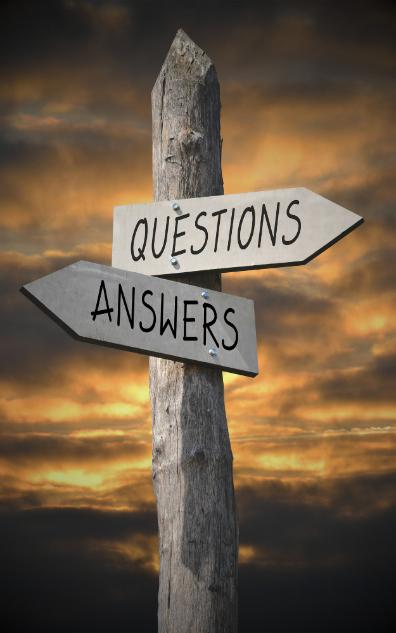
191 MARCH 2024 ISSUE NO. 20
Toby LeBlanc and Amos Wright


“A vivid and compelling read, Dark Roux introduced me to evocative characters and a setting—Cajun country—that resonated deeply through artful description. LeBlanc really is a master of vivid description and detail. He makes the sounds, tastes, smells of place, and the complexity of characters and culture jump off the page.
Wonderful book!” - Five Star Reader Review
Dark Roux
Toby LeBlanc
"...an extraordinary work of history."
- Bill
Plott, Alabama Writers' Forum
Petrochemical Nocturne
Amos Jasper Wright



SUBSCRIBE TO WELL READ’S NEW YOUTUBE CHANNEL! WELL READ MAGAZINE 196

BETWEEN THE PAGES - INTERVIEWS, READINGS, AND MORE 197 MARCH 2024 ISSUE NO. 20

Thursday through Sunday noon-4:00 p.m.
Other times available by appointment
NETWORKING WELL READ MAGAZINE 198 Pat Conroy Literary Center
Street
601 Bladen
Beaufort, SC 29902

NETWORKING 199 MARCH 2024 ISSUE NO. 20



NETWORKING WELL READ MAGAZINE 200 The Haunted Book Shop 9 S. Joachim Street Mobile,Alabama 36602 (251) 348-7668



You come to the city because your passion called you here. Whatever that passion may be. That thing you love. And you wander out into the streets searching for a place to pull up a stool, order a drink, chat with the bartender about all things divine.
Welcome to God On The Rocks. Serving up great drinks and soulful conversations since time began.
NETWORKING 201 MARCH 2024 ISSUE NO. 20


Authors’ Networking Group



NETWORKING WELL READ MAGAZINE 202




NETWORKING 203 MARCH 2024 ISSUE NO. 20

WELL READ MAGAZINE 204




205 MARCH 2024 ISSUE NO. 20 Click here to subscribe to our mailing list and never miss a singe issue! Follow us on social media Visit our online Book Shop and support Independent Bookstores

WHAT’S YOUR STORY? WELL READ MAGAZINE 206
I’m looking for Authors Interviewing Authors and would love to shine a spotlight on your favorite Independent Bookstores, Book Sellers, Libraries, and Librarians.
These pages are a great way to let readers know who you are and they are FREE.
Send orders for ads, interviews, or the stories mentioned above, as well as any questions about the magazine to
wellreadmagazine@gmail.com
WHAT’S YOUR STORY? 207 MARCH 2024 ISSUE NO. 20

OFF THE PAGE
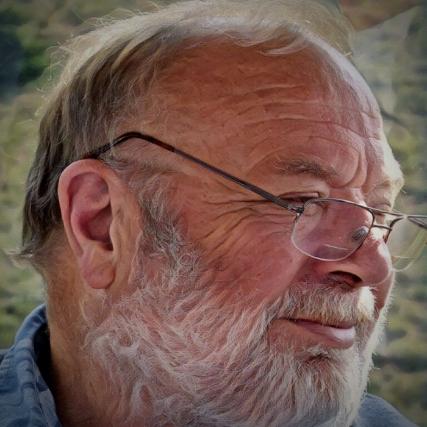
208 WELL READ MAGAZINE
A monthly column that takes us off the page and into the life of Raymond Atkins

Not too long ago, my wife and I had the opportunity to visit the homes of two famous Southerners, Elvis Presley and William Faulkner. Elvis, of course, was the King of Rock and Roll, and as almost everyone knows, his Memphis home is called Graceland. William Faulkner was the King of Southern Fiction, and his residence—located just south of Memphis in Oxford, Mississippi—has the pastoral name of Rowan Oak.
So, here we have two Southern boys who made it good. You might not have realized it, but they shared many similarities.Among other things, they both gave their houses names, they both left this world before their times, and they both recorded “YouAin’t Nothin’but a Hound Dog.” Ok, Faulkner didn’t record “Hound Dog,” but I have it on good authority that he hummed it a lot, and I think he went to school with one of the Jordanaires. So even though the two men had some similarities, they were like identical twins when contrasted with how well their houses compare.
We should go ahead and get the big stuff out of the way first.At Graceland, there is not one, but two jets parked out in the yard. How Elvis got them landed out there is beyond me, but I guess they didn’t call him “the King” for nothing. There are no aircraft at Rowan Oak. Not even a kite. When we went to Graceland, it looked like we had wandered into a Cadillac dealership. There were several of
OFF THE PAGE WITH RAYMOND ATKINS 209 MARCH 2024 ISSUE NO. 20
the classic luxury vehicles, including a purple one, a white one, and a pink one. But there were no vehicles at all at Rowan Oak except for the Toyota we drove up in. I guess the guy working there walked in that day.
At Graceland, there were literally hundreds of gold records, platinum albums, and other glittering memorabilia mounted upon the walls. The glare from these made the wearing of genuine Elvis sunglasses almost a necessity in some parts of the mansion (see gift shop paragraph below).At Rowan Oak, neither Faulkner’s Pulitzer Prize nor his Nobel were nailed up anywhere.And there wasn’t a single gold or platinum novel in sight. It was really quite a disappointment. I thought there might at least be one of those big belt buckles displayed, like the ones that wrestlers and boxers get. Both of the historic estates had outbuildings, but only Graceland had one that had been turned into a shooting gallery. Both houses had plenty of rooms, but only Graceland had a Jungle
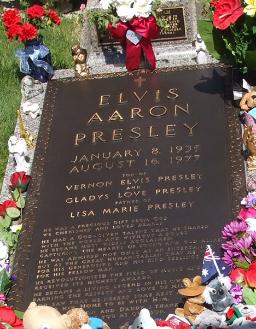
OFF THE PAGE WITH RAYMOND ATKINS WELL READ MAGAZINE 210
Room.And both properties had yards, but only one of those yards had an Elvis buried in it.
When it came to souvenirs, Graceland won hands down. The gift shop was more like a gift mall. There were Elvis t-shirts, Elvis CDs, Elvis posters, Elvis sunglasses, Elvis statues, Elvis cutlery, Elvis books, Elvis toys, Elvis pajamas, Elvis bumper stickers, Elvis bobble-heads, Elvis magnets, Elvis postcards, and Elvis bric-a-brac. There were full-size, sequined, leather jumpsuits with capes.And there were forty-seven different Elvis shot glasses, which I found ironic, sinceI’ve heard he didn’t drink. The souvenir situation was entirely different at Rowan Oak.
“Where is the gift shop?” I asked the curator, a nice man who seemed to be extremely knowledgeable about William Faulkner even though he didn’t have a clue about what tourists really want.
“We don’t actually have one,” he admitted. “But we do have these nice scholarly tracts about William Faulkner for sale.”

OFF THE PAGE WITH RAYMOND ATKINS 211 MARCH 2024 ISSUE NO. 20
“Great,” I said. “Scholarly tracts. But what about some shot glasses?”
“No shot glasses,” the man said. He seemed a bit sheepish.
“I Heart Faulkner t-shirts?” I asked.
“Sorry.”
“Absalom,Absalom action figures?”
“I’m afraid not.”
“Well, do you at least have a life-size cut-out of Faulkner that I can stand beside, so my wife can get a picture?”
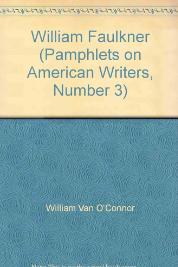
“No, sorry. Just these tracts.” I bought some of them out of a sense of mutual embarrassment, but I have to tell you that they just don’t display as well as shot glasses would have. In all honesty, about the only category in which Rowan Oak excelled was price. The cost of admission there was $5, period. And I had the impression that they’d spot you a buck or two if you had been down on your luck. It was quite a different story at Graceland.A complete tour, including a visit to the Jumpsuit Collection, the Jungle Room, and all nine gift shops cost $68 per person. Since I am a cheapskate at heart, I went discount
OFF THE PAGE WITH RAYMOND ATKINS WELL READ MAGAZINE 212
fishing when I heard the price.
“How much with ourAARP?” I asked. “$68.”
“How about with a student discount?”
“$68.”
“Children under twelve?”
“$68.”“Actual Confederate veteran wounded at Gettysburg?”
“$68.”
As I handed over the price of admission, I swear I heard these familiar words wafting on the gentle Memphis breeze: “Uh, thankya. Thankya verra much.”
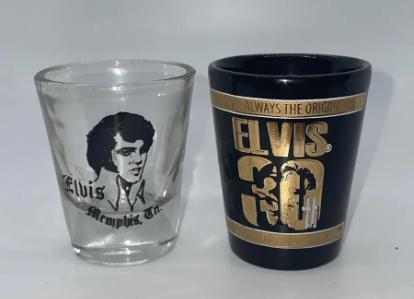
OFF THE PAGE WITH RAYMOND ATKINS 213 MARCH 2024 ISSUE NO. 20



Mandy Haynes, Editor-In-Chief
Mandy Haynes is afreelance writer for Amelia Islander Magazine, Amelia Weddings, author of two short story collections, Walking the Wrong Way Home, Sharp as a Serpent's Tooth Eva and Other Stories, and a novella, Oliver. She is the co-editor of the Southern Writers Reading reunion anthology, The Best of the Shortest. Mandy is the creator, designer, content editor, and publisher of WELL READ Magazine.


Raymond L.Atkins, Contributing Editor (OFF THE PAGE)
Raymond L.Atkins is a reputed and award-winningAmerican writer, who is famous for writing Southern fiction, paranormal, mystery, and humor stories. He has penned several mind-blowing standalone novels, including Sorrow Wood, Sweetwater Blues, Front Porch Prophet, Camp Redemption, etc.Atkins lives and works in the mountains of Northwest Georgia


Robert Gwaltney, Contributing Editor (INSIDE VOICES)
Robert Gwaltney, award winning author of southern fiction, is a graduate of Florida State University. He resides inAtlanta Georgia with his partner, where he is an active member of theAtlanta literary community. Robert’s work has appeared in such publications as The Signal Mountain Review and The Dead Mule School of Southern Literature. His debut novel, The Cicada Tree, won the SomersetAward for literary fiction. In 2023, Gwaltney was named Georgia Author of the Year for first novel.

Dean James, Contributing Editor (THE WRITER’S EYE)
Dean James is the USA Today and New York Times bestselling author of the Cat in the Stacks and Southern Ladies mystery series. Aseventh generation Mississippian, he lives and writes in the Jackson, Mississippi area with four cats and more books than he can ever count. He keeps his younger sister Carolyn Haines locked in the attic. Despite his best effort she escapes constantly and wreaks havoc on the countryside.
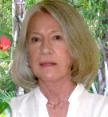
Meet the staff


Claire Hamner Matturro , Contributing Editor (CLAIRE CONSIDERS)
Claire Hamner Matturro is a former attorney, former university writing instructor, avid reader, and the author of seven novels, including four published by HarperCollins. Her poetry appears in various journals including Slant and Lascaux Review. She is an associate editor ofThe Southern LiteraryReview and lives happily in Florida with her crosseyed rescued black cat and her husband.


Jeffrey Dale Lofton, Contributing Editor (INSIDE VOICES)
Jeffrey Dale Lofton hails from Warm Springs, Georgia. His years telling the stories of playwrights and scriptwriters as a stage and screen actor taught him the pull of a powerful story arc. Today, he is SeniorAdvisor at the Library of Congress, surrounded by books and people who love them. Red Clay Suzie is his debut novel, a fictionalized memoir written through his lens—gay and living with a disability— in a conservative family in the Deep South. It was longlisted for the 2023 Center for Fiction First Novel Prize and awarded the Seven Hills Literary Prize for Fiction, among other distinctions.

Annie McDonnell, Contributing Editor (ANNIEASKS)
Annie McDonnell, best selling author of Annie’s Song: Dandelions, Dreams & Dogs, contributor to In Flow Magazine, NZ and founder of the Write Review, teacher, speaker, book reviewer, author consultant, co-administrator of the World of the Write Review Book Club, blogger, and author online event planner.
Eva by Mandy Haynes
“Behold, you give unto me the power to tread on serpents, and over all the power of the enemy, and nothing shall by any means hurt me…”
Meet Eva, a young daughter of traveling Pentecostal preachers, who catches snakes while her parents hide behind the bible and a large wooden crate. Eva’s life changes when she makes her first friend and realizes there is more to life than fear.
…When it was time to for me to go home, Eva pointed at my bucket and asked, “What are you goin’to do with them things anyway?”
“Daddy uses them for fishing bait.”
“You reckon he’ll need more tomorrow?” She asked.
“Oh, no…these’ll last him awhile!” We’d filled the bucket almost full and I couldn’t wait to show him. I’d never caught that many before, not even with Hank. I laughed, tickled with myself, but noticed Eva was frowning.
“Oh, I was hopin’we could catch some more tomorrow.”
Before I could talk myself out of it, I turned the bucket upside down and let the crawdads loose.As I watched them run backwards for new hiding places, I fought the urge to grab them back. But I wasn’t sure Eva would want to meet me without having a reason, or if she would talk like she did
without having the crawdads to keep her busy.
“What did you do that for?”
“I guess I’ll see you here tomorrow.” I said with a shrug and broke out in giggles while Eva stared at me like I’d sprouted a second nose, or another set of ears. I couldn’t stop giggling, but Eva never even smiled.
“Alrighty then,” she finally answered and we made our way out of the creek.
“Right here, tomorrow?” I called out to Eva.
I held my breath until she nodded. Then we smiled at each other on the opposite sides of the creek.
Me with my empty bucket, and Eva with a sack full of snakes.
“You’ve got to meet Eva! Every character Mandy Haynes writes is seductive and complex. Young Eva entices you with her wisdom and fearlessness. Read this story and then buy the whole short story collection Sharp as a Serpent’s Tooth. You won’t be able to put it down.” Ruthie Landis, Best SellingAuthor, Life Coach/ Therapist, Enneagram Teacher
Eva is a novella that’s in the collection, Sharp as a Serpent’s Tooth - Eva and Other Stories. If you want to hear the rest of Eva’s story, you can read it now for free through Kindle Unlimited, or purchase it for ninety-nine cents.


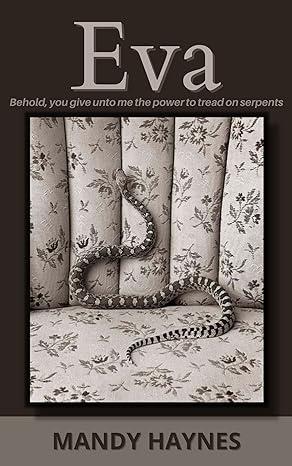













 Carolyn Haines, Sue Brannan Walker, and Saundra Grace
Carolyn Haines, Sue Brannan Walker, and Saundra Grace












































 Oliver by Mandy Haynes
Oliver by Mandy Haynes





























 Richardson-Moore
Richardson-Moore























































